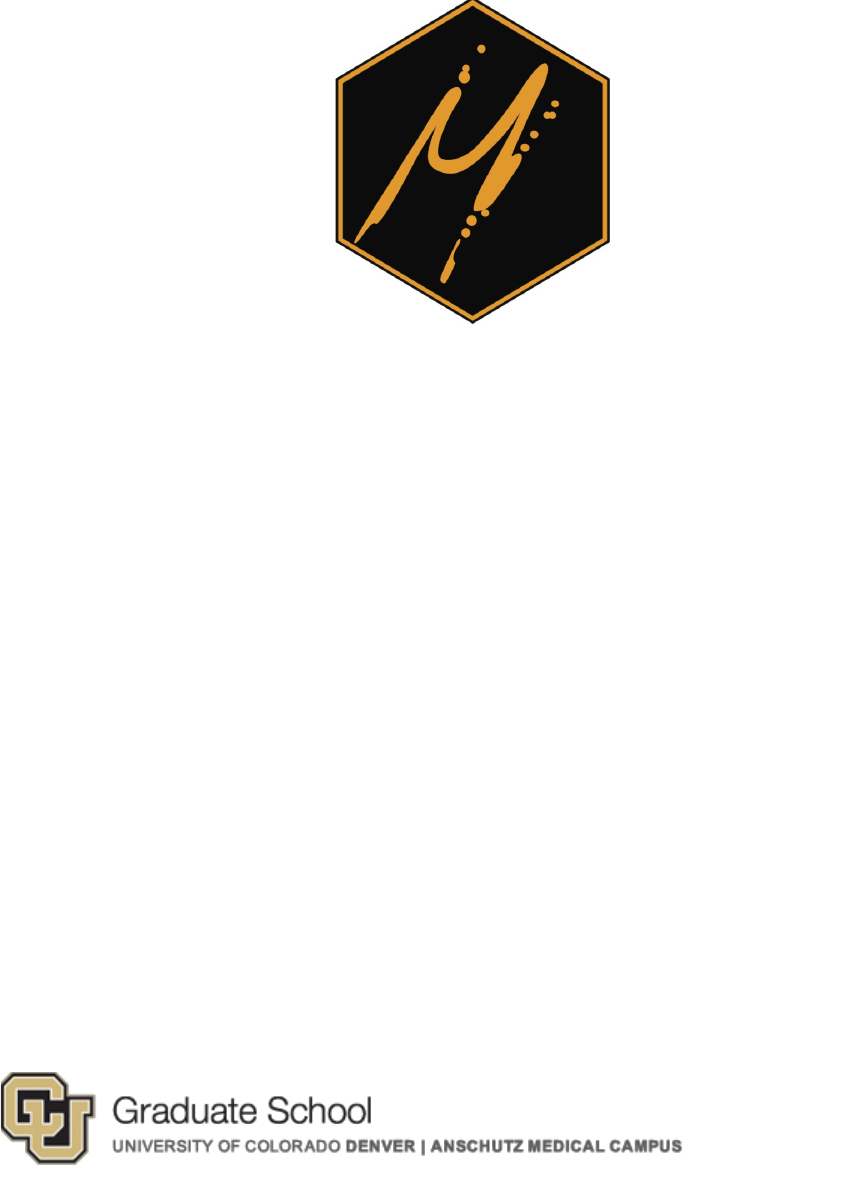
Page | 49
Graduate Program
in
Microbiology
2019-2020 Handbook
This handbook, which includes parts of the UCD-AMC Graduate School Rules, does not
constitute a contract with the University of Colorado Denver, Anschutz Medical Campus
Graduate School, or the Graduate Program in Microbiology either expressed or implied.
The Graduate Program in Microbiology reserves the right at any time to change, delete, or
add to any of the provisions at its sole discretion. Furthermore, the provisions of this
document are designed by the Graduate Program in Microbiology to serve as firm
guidelines rather than absolute rules, and exceptions may be made on the basis of
extenuating circumstances.

Page | 1
TABLE OF CONTENTS
INTRODUCTION ......................................................................................................................... 3
GENERAL INFORMATION ....................................................................................................... 4
Checking Account ................................................................................................................................ 4
Computers (Software & Equipment) ................................................................................................... 4
CU Alerts! ............................................................................................................................................. 4
E-mail Access and IT Services .............................................................................................................. 4
ID/Access Badge: Identification Card and After Hours Access ............................................................ 5
Keys ..................................................................................................................................................... 5
Lab Equipment Use .............................................................................................................................. 5
Lab Training Classes ............................................................................................................................. 5
Library .................................................................................................... Error! Bookmark not defined.
Teaching Opportunities ....................................................................................................................... 6
Parking & Transportation .................................................................................................................... 7
Residency Status .................................................................................................................................. 7
Stipend Support, Health Insurance, and Tuition ................................................................................. 8
Teaching Opportunities ......................................................................... Error! Bookmark not defined.
Travel to Professional Meetings .......................................................................................................... 8
COURSE CURRICULUM AND REQUIRED EVENTS ........................................................ 10
FIRST-YEAR STUDENT INFORMATION ............................................................................ 12
Pre-Comps Advisory Committee ....................................................................................................... 12
Microbiology Graduate Program Director & Administrator .............................................................. 12
Planning Academic Program .............................................................................................................. 12
Electives ............................................................................................................................................. 13
Grades ............................................................................................................................................... 13
Lab Rotations ..................................................................................................................................... 14
Mentor Selection ............................................................................................................................... 14
Participation in Journal Clubs, Research Progress Seminars and Microbiology Seminars ................ 14
Fellowship Applications ..................................................................................................................... 14
TYPICAL FIRST YEAR CURRICULUM ............................................................................... 16
FALL SEMESTER .................................................................................................................................. 16
SPRING SEMESTER ............................................................................................................................. 17
SUMMER SEMESTER .......................................................................................................................... 17
PRELIMINARY EXAMINATION ........................................................................................... 18
Overview ............................................................................................................................................ 18
Guidelines for Exam ........................................................................................................................... 18
Grading Exam .................................................................................................................................... 18
COMPREHENSIVE EXAMINATION ..................................................................................... 19
Eligibility and Dates ........................................................................................................................... 19
Paperwork to Schedule the Exam ...................................................................................................... 19
Written Proposal ............................................................................................................................... 19
Organization of the Written Proposal ............................................................................................... 20
Oral Examination ............................................................................................................................... 21
Outcomes .......................................................................................................................................... 21
Page | 2
THESIS COMMITTEE AND DISSERTATION ..................................................................... 23
Thesis Committee .............................................................................................................................. 23
Dissertation ....................................................................................................................................... 23
Changing Advisors or Dismissal from Thesis Lab ............................................................................... 24
TRAINING TIME LIMIT .......................................................................................................... 25
CAREER INFORMATION ....................................................................................................... 25
Career Development Opportunities .................................................................................................. 26
GRADUATE STUDENT ACTIVITIES .................................................................................... 27
Student Senate and Council .............................................................................................................. 27
Microbiology Student Governance .................................................................................................... 27
Annual University Student Research Forum & Poster Session .......................................................... 27
Graduate Student Retreat ................................................................................................................. 27
Recruitment of New Students for the Graduate Program in Microbiology ....................................... 27
Other Activities .................................................................................................................................. 28
GRADUATE PROGRAM TRAINING FACULTY ................................................................ 29
GRADUATE PROGRAM STAFF ............................................................................................ 35
GRADUATE PROGRAM STUDENTS .................................................................................... 35
GRADUATE PROGRAM COMMITTEES ............................................................................ 36
COURSE DIRECTORS .............................................................................................................. 36
STUDENT LEADERSHIP AND REPRESENTATIVES ........................................................ 37
ACADEMIC CALENDAR ......................................................................................................... 38
Fall Semester 2019 ................................................................................ Error! Bookmark not defined.
Spring Semester 2020 ............................................................................ Error! Bookmark not defined.
Summer Semester 2020 ........................................................................ Error! Bookmark not defined.
CONTACT INFORMATION .................................................................................................... 41
Graduate School ................................................................................................................................ 41
Immunology & Microbiology Department 303-724-4224 ........................................... 41
Microbiology Program 303-724-0107 ................................................................................... 41
APPENDIX 1 ............................................................................................................................... 42
Requirements for BSP Students joining Microbiology ....................................................................... 42
APPENDIX 2 ............................................................................................................................... 43
Courses and Electives for Microbiology Graduate Program Students ............................................... 43
APPENDIX 3 ............................................................................................................................... 44
Graduate School Policy for Vacation and Leave for PhD Candidates ................................................ 44
APPENDIX 4 ............................................................................................................................... 46
RESOURCES FOR NEW GRADUATE STUDENTS .................................................................................. 46
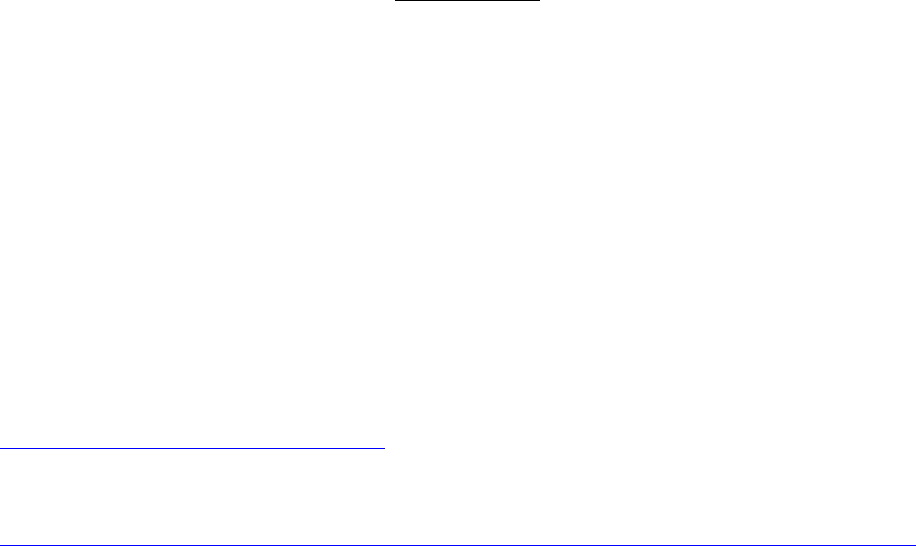
Page | 3
INTRODUCTION
Welcome to the Graduate Program in Microbiology at the University of Colorado Anschutz Medical
Campus. This handbook provides information about our Graduate Program.
The material contained within this handbook is as current as possible and describes Microbiology
Graduate Program specific policies. Please be aware that our program continues to evolve and specific
policies may be altered, thus, the information in this handbook may not always be current.
This handbook, which includes policies and procedures for the Graduate Program in Microbiology, is
provided to serve as firm guidelines rather than absolute rules, and exceptions may be made on the basis
of an extenuating circumstance. Thus, the handbook does not constitute a contract with the Graduate
Program in Microbiology, the Department of Immunology & Microbiology, or the University of Colorado
Denver | AMC Graduate School, either expressed or implied. The Graduate Program in Microbiology
reserves the right at any time to change, delete, or add to any of the provisions at its discretion. Any
exceptions to the departmental policies contained herein require approval by the Director of the Graduate
Program. Additional information can be found at the departmental website:
http://www.CUAnschutz.edu/microbiology.
The Graduate School Course Book by the University of Colorado Anschutz Medical Campus can be found
at
http://www.CUAnschutz.edu/anschutz/studentresources/Registrar/CourseListings/Pages/default.aspx.
Students are responsible for knowing the procedures, policies and requirements outlined in this
handbook.
Before the first day of class, a student should attend the Microbiology Program orientation and the
University of Colorado Anschutz Medical Campus Graduate School Orientation. These orientations are
mandatory and will provide you with valuable information regarding student insurance, research ethics
and animal facility training.
CALL THE PROGRAM OFFICE (Michele-Parsons, Microbiology Program Administrator - 303-724-0107)
WITH ANY QUESTIONS.

Page | 4
GENERAL INFORMATION
Checking Account
It is important to establish a checking account as soon as possible. The University issues all pay checks,
including student stipends, as automatic direct deposits. Students should log into their portal and navigate
to the resources tab to locate their W4 and Direct Deposit forms. Note: Direct deposit is mandatory and
students have until August 16
th
to complete these two forms.
Computers (Software & Equipment)
The Department of Immunology and Microbiology has invested in computers for students and other
research personnel. Individual laboratories all have computers that are accessible to students. Most
departmental equipment has common use computers for special purposes. Because these are common
use computers, everyone is asked to keep their own data on the departmental lab server which is backed
up nightly and not on the hard drives. It is especially important to prevent virus problems and to maintain
free space on the hard drive that no extra programs may be installed on these common use computers.
The Department Administrator can help students set up remote access accounts for their home
computers. In addition, UCD has site licenses for several programs such as Microsoft Office, and virus
protection programs that can be downloaded onto student computers without charge. This will allow
compatibility between computers at work and at home. All computers connected to the UCD network are
required to run approved, up-to-date virus protection software.
Department of Immunology and Microbiology point of contact for all department level computers,
printers and server support:
Mike Elmore, LAN Administrator/IT Consultant
Michael.elmore@cuanschutz.edu
Cell 303-981-5172
Please submit all support requests using a ticket at: http://Micro-LS1.ucdenver.pvt/support/
CU Alerts!
CU Alerts! Emergency messaging includes email, text, computer pop-up messages, and social media
postings. Please visit the Emergency Management CU Alerts! Page www.CUAnschutz.edu/alerts and
follow the instructions to register your cell phone number. Be sure to enter your cell phone number in
the Employee Profile section of the portal as a “CELLULAR” device (or it will not be imported into the CU
Alerts! System).
E-mail Access and IT Services
Graduate students will have an account in the electronic mail/internet access system by contacting the
University of Colorado IT Services- 4-HELP (4357). You will need to know both your nine-digit Student
Identification Number and your four-digit Personal Identification Number (PIN) to obtain an account in
the system. If you do not know your PIN, you may obtain it at the UCD-AMC Registrar’s by going there in
person with a picture ID. Note that these are university accounts and cannot be used for political lobbying,
downloading music files, etc. University IT Services is also available to assist you with your IT/Helpdesk
needs. Please refer to the following website for more information regarding their services and protocol-
http://www.CUAnschutz.edu/about/departments/ITS/Pages/OIT%20Home.aspx
Most communications from the Graduate Program in Microbiology will be via e-mail; all Microbiology
Graduate Program graduate students are expected to have e-mail access, to monitor this account
regularly, and to respond to emails from the Program Administrator, Program Director, and other

Page | 5
Program Faculty. Notifications regarding program requirements and events will be sent to all students’
University of Colorado email addresses ending in @cuanschutz.edu.
ID/Access Badge: Identification Card and After Hours Access
Everyone on campus must carry a UCD picture ID at all times. This ID serves many purposes including
enabling students to access the library, parking, gain access to the laboratory sections of the Department,
after-hours entry into RC-1, after-hours access to the elevators, and to attend special University functions.
Please notify the Department Administrator immediately if your UCD ID is lost so it can be canceled and
replaced.
Keys
The Department Administrator will issue keys for office doors. Entrance to animal and BSL-3 facilities
requires modification of your ID card. There is a substantial charge for lost keys.
Lab Equipment Use
The Department of Immunology and Microbiology has made a sizeable investment in state-of-the-art
equipment to support its research programs. Expert users for each piece of equipment are designated to
teach new users how to get the most benefit from the equipment and how to properly use it. All users
must observe equipment guidelines and sign up in the logbooks. This keeps the equipment available for
everyone. Access to equipment will be restricted for anyone who abuses the equipment.
The Department of Immunology and Microbiology point of contact for Equipment (repairs, service
contracts, inventory, and ordering) is:
JC Haller, Laboratory Resource Coordinator
Jon.haller@cuanschutz.edu
Anschutz Campus RC1N P18-9122
PH: 303-724-4245 Cell: 303-594-2838 Fax: 303-724-4226
The preferred method to submit a service request for problems with equipment, computers, or facilities
is through the online ticketing system. By using this system we can insure your request is tracked and
properly completed.
http://micro-ls1.ucdenver.pvt/support/
Lab Training Classes
There are several university requirements to assure safety of all personnel who work in laboratories. The
Environmental Health and Safety Division of UCD offers classes and certification in radioisotopes,
handling hazardous waste, and blood borne pathogens. For working in microbiology laboratories, all of
these classes are recommended. Each topic has an initial class with extensive handouts to read before
and an annual refresher class in which you will hear about new regulations, recent problems, etc. The
information on the scheduling of the classes is on the website:
http://www.CUAnschutz.edu/research/EHS/Pages/EHS.aspx
The Animal Care and Use Program provides information about requirements for using animals in research
programs. Special training in surgery, anesthesia, etc. is offered from time to time:
http://www.CUAnschutz.edu/research/OLAR/Pages/default.aspx
Graduate students should take these classes at the beginning of their first rotation. Radioisotopes may be
taken at a later date or a non-users version may be taken depending on the laboratories in which rotations

Page | 6
will take place. Please notify the Graduate Program Administrator as soon as the necessary examinations
have been passed so the information can be put into your folder. It is the student’s responsibility to stay
current with required annual refresher classes.
Students must complete the following Skillsoft classes prior to working in the lab:
• Lab Safety
• Blood Borne Pathogens
• Regulated Medical Waste Management
All new research associates, animal care workers or faculty, staff, fellows, students and affiliates who
are part of an IACUC or IBC protocol that works with animals, animal waste, or animal tissues or enter
the vivarium as well as those who work with the items detailed below are required to enroll in the
Occupational Health Program (OHP).
• toxins/venoms
• infectious agents
• anesthetic gases
• anti-neoplastic drugs
• teratogens/carcinogens
• radioactive materials
• heavy metals
• lasers
• formaldehyde
• human blood, tissues, cells or cell lines
Enrollment consists of completing and submitting the Initial Medical Surveillance Questionnaire, then
scheduling an Initial Medical Surveillance appointment by calling the Occupational Health Clinic at (303)
724-9145. All prior written immunization records need to be submitted prior to the appointment or
brought to the appointment. Your health information, immunization history and work-related duties
will be reviewed by the OHP nurse to identify any potential hazards and review health recommendations
and follow-up.
Depending on your risk category, the OHP may require you to undergo additional training, medical
surveillance, or additional vaccinations and/or titers prior to initiating your duties. Upon completion of
the Initial Medical Surveillance appointment, a certificate of OHP enrollment will be issued and your
OHP enrollment status forwarded to either the IACUC or IBC.
All employees will need to submit an Annual Medial Surveillance Form each year to keep their enrollment
current. The OHP will send out an annual reminder to each individual prior to the due date. If the Annual
Medical Surveillance Form is not received by the OHP by the end of the anniversary month, steps can be
taken to ensure compliance including notification of Principal Investigator (PI) or Supervisor and leading
up to OHP disenrollment and/or vivarium badge access removal.
Teaching Opportunities
Students who have an interest in teaching experience should make this interest known to the Director of
the Graduate Program and to their advisory committee (Pre-Comps or Thesis). It is possible to gain
teaching experience by participating in the teaching labs for medical students or by facilitating paper

Page | 7
discussions for first year core students. Faculty will provide advice in preparation and feedback on
teaching performance in order to improve teaching skills. Other teaching opportunities may be available
on the Anschutz Medical Campus and within UC Denver. For students interested in other teaching
opportunities, it is the responsibility of the student to obtain approval of their advisor, to conform to
relevant UC Denver Graduate School policies, and to inform both the Microbiology Graduate Program
Director and their Thesis Committee.
Parking & Transportation
Many parking options are available to students at the Anschutz Medical Campus and your first stop will
be the Parking Office in Building 500 if you are interested in any parking on campus. You can learn more
about student parking on the parking office’s website, but for convenience, we’ve summarized some key
options here as well.
You will be provided an RTD Eco pass each year. Your RTD Eco Pass is not just for
commuting to and from campus. You have unlimited rides on regular fixed route service
provided by RTD and all RTD contractor-operated fixed route service, including bus and Light
Rail.
2019/2020 Student Parking Permit Rates
• Students: $40/month
• Permit parking after hours and weekends only: No Charge. Monday -Friday 6:00pm to
6:00am or all day on Saturday and Sunday – Access in or out of the lot will be denied outside of
this time frame. Those still in the lot after 6:00am will be required to pay the hourly parking rate
upon exit.
• Rock Lot Parking: $14/month, The Rock Lot is a low-cost parking option for students on the
Anschutz Medical Campus that is in close proximity to the campus. It is located on the west side
of Victor Street north of the UPI garage.
• Reserved Parking: $95/month
• Carpool: $42/month
• Short Term Weekly Parking (1 to 8 weeks): $16/week
• Manage Your Student Parking Permit Online (Please note: You must have established parking at
the Parking Office before you will be able to manage your parking account online.)
Residency Status
By the end of your first year of training, students from out-of-state must petition the Office of the Registrar
for in-state resident status for the purpose of tuition classification. This is a very important priority for
first year students. After the first full year, funding will be available (assuming satisfactory academic
progress) only if the student qualifies as an in-state resident or is a foreign national. Required objective
evidence of residency includes:
• Colorado Driver’s license
• Colorado automobile registration & license plates
• Colorado voter registration
• Colorado state income tax records
• Ownership or Rental of residential property for at least 12 months
It is important to note that students are initially classified as “resident” or “non-resident” for tuition
purposes during the Admissions process. The classification is based upon information furnished by the
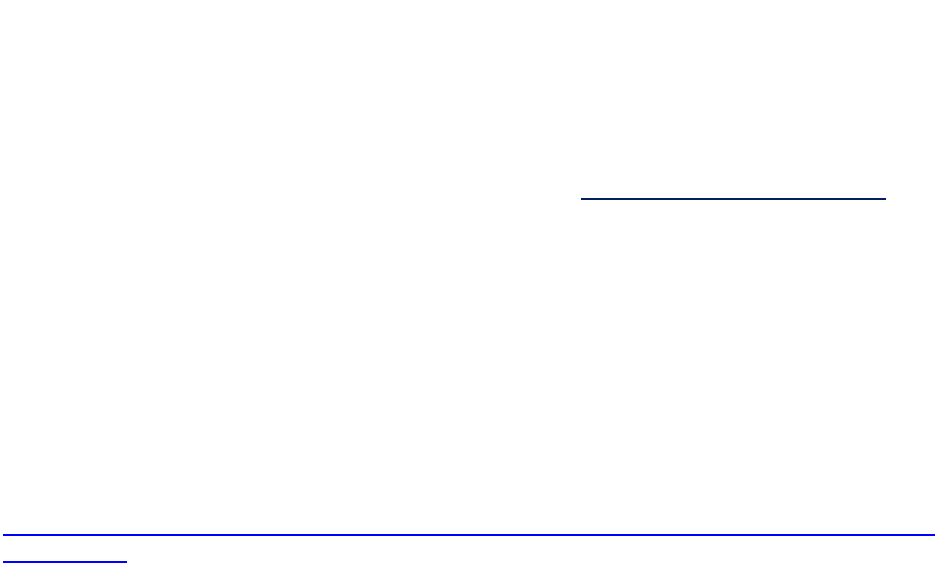
Page | 8
student and from other relevant sources. After the student's status is determined, it remains unchanged
in the absence of satisfactory evidence to the contrary. Once the student has met the requirements for
establishing residency (“domicile”) as defined by Colorado law, the student may submit a Petition for In-
State Tuition/Residency Classification to the Office of the Registrar. (Please see section, “Petitions and
Appeals”).
The requirements for establishing residency for tuition purposes are defined by Colorado law.
(See Colorado Revised Statutes 23-7-101 et. seq. View online at http://www.michie.com/colorado. As
tuition classification is governed by state law and by judicial decisions that apply to all public institutions
of higher education in Colorado, the University of Colorado does not have discretion to make exceptions
to the rules as established by state law.
The statutes require that a qualified individual must be domiciled in Colorado twelve (12) consecutive
months immediately preceding the term for which resident status is claimed.
An individual is “qualified” to begin the process of establishing domicile and the one year domicile
period by virtue of adulthood and emancipation at age 22, marriage, or enrollment in a post-
baccalaureate graduate or professional degree program. An unemancipated minor is qualified through
the residency of his or her parents or legal guardians. (See below “Emancipation and Residency.”)
Additional information can be found here:
http://www.CUAnschutz.edu/anschutz/studentresources/Registrar/StudentServices/Residency/Pages/R
esidency.aspx
Stipend Support, Health Insurance, and Tuition
Students in the Graduate Program in Microbiology receive an annual stipend ($31,000 for 2019-2020
academic year), individual health and dental insurance, and tuition. The Program Administrator will
arrange for payment of these funds, and handle any financial problems that may arise. Late registration
fees are the responsibility of the student.
First-year non-resident students are expected to take all necessary steps to attain Colorado Residency by
the end of their first year in the Program. This makes them eligible for in-state tuition rates, a very
considerable savings. The Program is only responsible for the cost of the equivalent of the in-state tuition
rate after the student’s first year.
After the thesis mentor has been selected, the student's stipend, insurance, tuition, research expenses
and professional travel will be paid from grants to the mentor. While receiving support from an NIH grant,
you cannot receive additional funds from outside employers per NIH guidelines.
Travel to Professional Meetings
Professional scientific meetings are excellent places to learn what is new in a particular field, interact with
scientists from other institutions and countries, see new equipment, and present research data. A
student’s attendance at local, national, or international meetings is by mutual agreement between the
student and mentor based on scientific or financial criteria. Reimbursement for meeting travel costs and
expenses are provided from the mentor’s research funding (at the mentor’s discretion and only with prior
approval of the mentor) or the student’s individual graduate fellowship.
Students may also apply for a Hirs award for travel to national meetings from the Graduate School.
Student travel awards are provided from an endowment entitled the “C. Werner and Kitty Hirs Graduate
Student Enrichment Fund” made to the University of Colorado Foundation for the use by the Graduate

Page | 9
School at the AMC of UC Denver. Awards will be for up to $500 and are to be used to help defray the
expenses incurred by a Ph.D. student who attends a national society’s meeting and presents his/her work.
Eligibility:
1. The student must have successfully passed his/her comprehensive exam.
2. The student must be enrolled in a basic biomedical sciences Ph.D. program.
3. The student must have an abstract (first author) submitted and accepted for presentation at
the meeting.
4. The student’s laboratory mentor must commit to providing any additional support necessary
for the student to attend the meeting.
Many national meetings also offer partial funding for selected graduate students to attend. It is the
student's responsibility to investigate and apply for such external funding. Funding for attending a
meeting is often coupled to having research data to present at the meeting as a poster or oral presentation
with slides. Abstracts for meetings are due months in advance of the meeting. Information on various
meetings and their abstract deadlines is available at the websites of the various scientific societies.
All travel funded by University funds must be pre-authorized by obtaining departmental approval. The
Administrative Assistant in your Mentor’s department will assist you in making all your travel plans
(airfare, hotel, etc.). It is your responsibility to contact them as soon as you begin making plans for your
travel and well before the meeting begins. Advance planning will avoid paying late registration fees and
higher airfares.
By the end of their first year, students should apply for a University Travel Card:
https://www.cu.edu/psc/travel
You are required to complete the following on-line Skillsoft training before the card will be issued:
• Travel & Travel Card Training
• Fiscal Code of Ethics
For assistance with booking travel and reconciling travel expenses for all labs in the Department of
Immunology & Microbiology your point of contact is:
Gwen Fredrick, Department Administrative Assistant
303-724-4224 RC1N – 9
th
floor North end
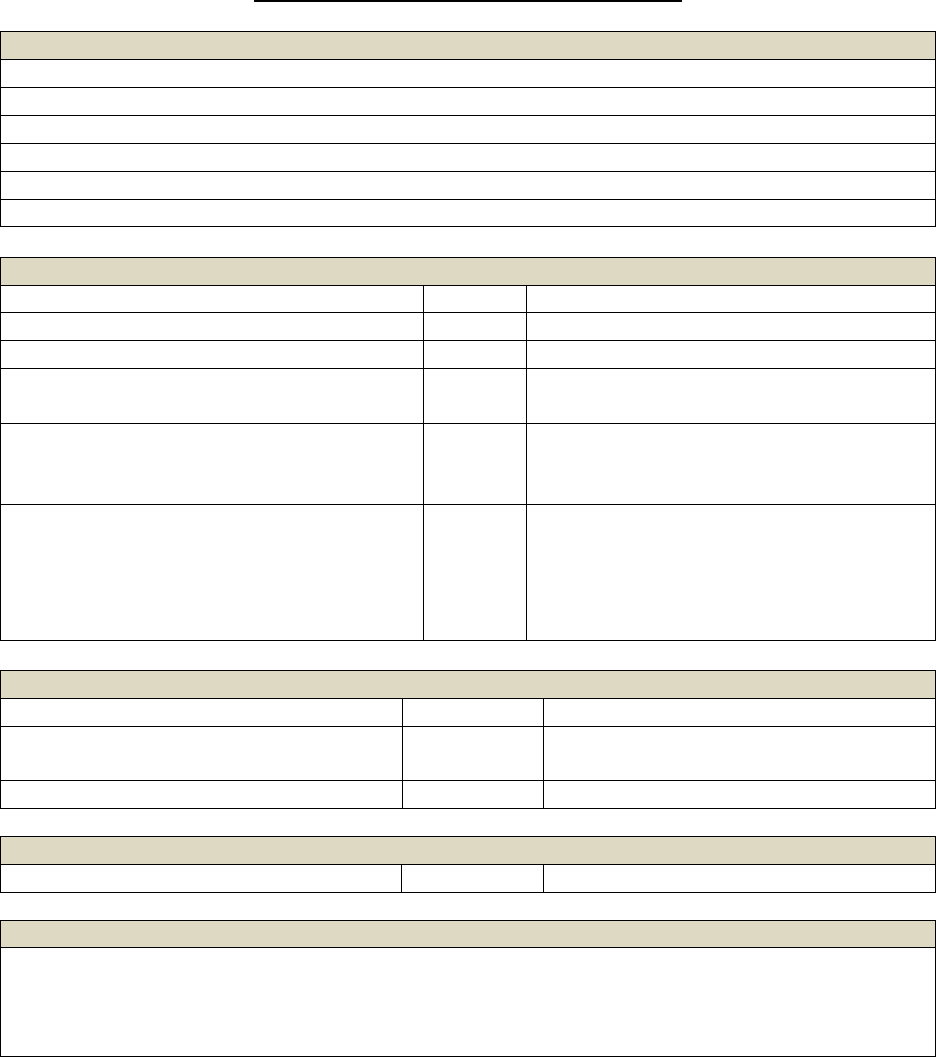
Page | 10
COURSE CURRICULUM AND REQUIRED EVENTS
Year 1 Required Events
Microbiology & Immunology Graduate Program New Student Orientation: August 13-17
Microbiology & Immunology Graduate Programs Student Retreat: TBD (late October, early November)
4 Pre-Comp Advisory Committee meetings: during orientation, and end of each rotation
Attend and participate in Infectious Disease Journal Club (IDJC)
Wednesday Student/Post-doc RIPs and Friday Seminar Series (barring class conflicts)
Present 15-minute summary seminar after each rotation
Year 1 Fall Semester Course Curriculum
Research in Microbiology
1 credit
MICB 7650-001
Research in Microbiology
1 credit
MICB 7650-002
Statistics for Basic Scientists
3 credits
BIOS 6606*
Foundations in Biomedical Sciences
6 credits
IDPT 7806**
Core Topics in Biomedical Sciences – topics A
Microbiology in Biomedical Research
2 credits
IDPT 7810-002
Core Topics in Biomedical Sciences – topics B
The Microbiome in Health and Medicine,
Gene Regulation and RNA Biology in Disease,
Principles of Cancer Biology
2 credits
IDPT 7810-009, -008, or -011
Year 1 Spring Semester Course Curriculum
Research in Microbiology
1 credit
MICB 7650, 001
Molecular Mechanisms of Bacterial
Disease
3 credits
MICB 7703
Molecular Virology and Pathogenesis
3 credits
MICB 7701
Year 1 Summer Semester Course Curriculum
Doctoral Thesis
1 credit
MICB 8990
Year 1 Preliminary Exam
Due dates for written portion of Preliminary Exam: ~June 3
Last day to complete oral portion of Preliminary Exam: ~June 25
*Dates are approximate. Time from May finals - end of June are reserved for Prelims until final
dates announced.
*BSP students take in their first year.
**MSTP students take their first year in the program.
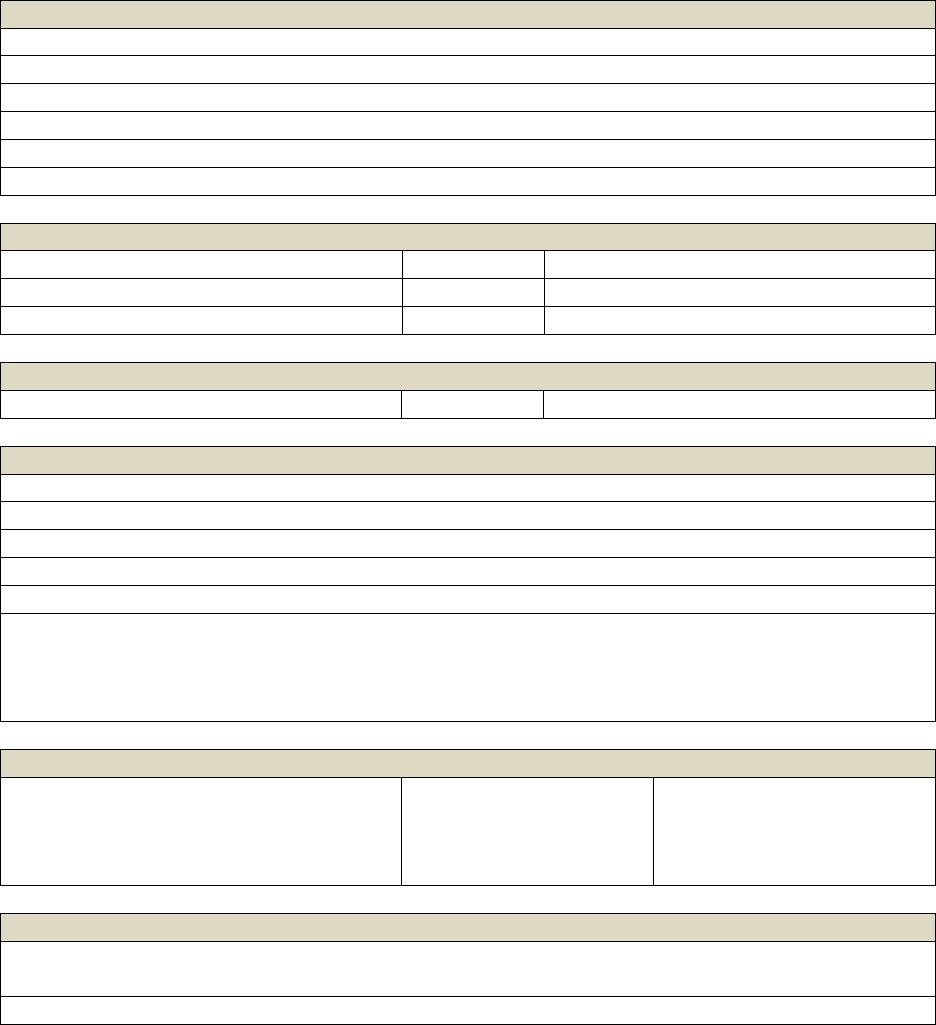
Page | 11
Year 2 Required Events
Microbiology Graduate Student Retreat
IDJC, Attend and Present
Attend Friday Seminar Series
Attend and Present in Student RIP series on Wednesdays
Committee meetings, with Pre-Comps or Comps Committee
Comprehensive Exam written proposal due two weeks before oral exam and no later than May 1
Year 2 Course Curriculum
Science as a Profession, Fall
1 credit
IMMU 7607
Research in Microbiology, Fall/Spring
variable
MICB 7650-0V3
Workshop in Scientific Writing, Spring
1 credit
IMMU 7605
Year 2 Summer Semester Course Curriculum
Doctoral Thesis
1 credit
MICB 8990-OV1
Year 3 and Beyond Required Events
Microbiology Graduate Student Retreat
IDJC Attend and Present
Attend Friday Seminar Series
Attend and Present in Student RIP series on Wednesday 9 am
2 Thesis Committee meetings
Ethics instruction must be undertaken at least once during each career stage, and at a frequency of no
less than once every four years. After completing the full ethics course in year two, an ethics
refresher course may be required, in which students are required to participate only in the discussion
sessions.
Year 3 and Beyond Course Curriculum
Doctoral Thesis
5 credits Fall/Spring,
1 credit Summer, *5
credits if defending in
Summer
MICB 8990
Thesis Preparation
Obtain approval from Thesis Committee to write dissertation ~6 months before anticipated defense
date
Thesis due to Thesis Committee members at least 2 weeks before oral defense

Page | 12
FIRST-YEAR STUDENT INFORMATION
Pre-Comps Advisory Committee
The Pre-Comps Advisory Committee will advise and oversee the academic progress of students until they
begin meeting with their Thesis Committee after their comprehensive exam is completed. First-year
students will meet with the Pre-Comps Advisory Committee during the beginning of the fall semester
(August). At this meeting, the student and committee will review his/her academic background and goals.
The committee will help the student make decisions regarding courses and rotations, and help resolve
any problems that may arise until their Thesis committee is formed at the end of Year 2. The Pre-Comps
Advisory Committee will also meet individually with each student 1 to 2 weeks before the end of each
rotation to discuss academic progress, rotation plans, and to plan future courses. Students may call a
meeting of the committee at any time by contacting the committee chair.
Microbiology Graduate Program Director & Administrator
The Director will act as an administrator for graduate student activities from matriculation through the
thesis defense and is a member of the Pre-Comps Advisory committee. The Director and Program
Administrator will interface with the Graduate School to ensure students are registered for appropriate
courses and credits and ensure students fulfill required committee meetings as well as seminar and
journal club presentations. A file will be maintained by the Program Administrator for each student that
records their activities and accomplishments while in the graduate program and post-graduation.
Planning Academic Program
The Graduate School requires at least 30 semester hours in course work pre-comps (rotations and
research courses taken prior to or concurrent with the completion of the comprehensive examination)
and an additional 30 semester hours of thesis credits for the Ph.D. All work undertaken as a graduate
student must be in compliance with the academic Code of Honor.
The sequence of courses required for the first year of the Graduate Program in Microbiology is shown in
the following section.
First-year requirements:
• 10 credit hours of the BMS Core Course series (IDPT 7806, and 2 topics from IDPT 7810)
• Three laboratory rotations (MICB 7650, 11 weeks each)
• Statistics for Basic Scientist (BIOS 6606).
• MICB 7701
• MICB 7703
• Students must pass at least 19 credit hours in the first year of study in order to be eligible to take
the comprehensive exam during the second semester of the second year
Second-year requirements
• IMMU 7607 (Science as a Profession), a course in scientific and research ethics, is also required,
and is generally taken in the fall semester of the student’s second year.
• Students must have passed at least 30 credit hours by the time they apply to take their comp
exam
Depending on the student's past courses, the Pre-Comps Advisory Committee may allow alternative
courses and/or provide transfer credit for some courses. A request in writing must be submitted to, and
approved by, the Pre-Comps Advisory Committee and the Microbiology Graduate Program Director.
Students who matriculate in BSP or other graduate programs and wish to pursue a degree in Microbiology

Page | 13
may submit requests to the Pre-Comps Advisory Committee to modify the requirements for courses to be
taken in the first year and the committee may, in some cases, require that specific courses in Microbiology
be taken during the second year. Students should be aware that they will be responsible for general
knowledge in Microbiology during the Preliminary Examination.
Electives
There are many other excellent graduate courses available in the UCD-AMC Basic Science Ph.D. Graduate
Programs. A list of elective courses currently approved by the Microbiology Program faculty can be found
in Appendix 2. Students in the Microbiology Graduate Program may take electives during their first year
with approval of the Pre-Comps Advisory Committee, or during subsequent years with the permission of
their mentor. An annual listing of all graduate courses is published on-line at:
http://www.CUAnschutz.edu/studentservices/resources/registrar/students/Courses/Pages/CourseDescr
iptions.aspx and semester updates are sent to students via email from the Graduate School office.
Registration for classes is completed online. It is advisable to discuss with the Graduate Program Director
and the Pre-Comps Advisory Committee the courses that you plan to take each semester of the first year.
If you fail to register before the deadline, you will be responsible for late fees. You need to register for
one credit each summer or you will have retirement benefits withheld from your stipend. For the fall
semester of the second year, you need to sign up for five credits of 7650 (pre-Comprehensive Exam
research) as well as for the one credit ethics course. For the spring semester, you need to sign up for five
credits of 7650. After you have passed your comprehensive exam, you need to sign up for five credits of
8990 (post-comprehensive exam credits) for each semester until you graduate. After the first year, with
agreement of the Thesis mentor and committee, additional course work may be taken in the second and
later years.
Grades
Reporting of grades. Grades are reported to the Registrar by the Course Director and the Graduate
Program Director (for rotations).
Passing grades. All required courses (including the Core Course, laboratory rotations, and Microbiology
course work) are to be met with grades of B (3.0) or better. If a student earns less than a B (3.0) in any of
these courses, the Pre-Comps Advisory Committee and the Microbiology Graduate Program Faculty will
decide, on a case-by-case basis, the appropriate measures to be taken.
Academic probation. The overall grade point average must be a B (3.0) in order for the student to be in
good standing in the Graduate School. The Registrar will notify the student and the Graduate Program if
and when a student is on academic probation, and Program approval/advising will be required for course
registration during this time. The Pre-Comps Advisory Committee will then meet with the student to plan
a strategy to remove the student from probation. This may require achieving higher grades in the later
courses to balance grades of B- or lower, or taking additional courses. During probation a grade of B or
better must be maintained in all courses. The student will have a maximum of two semesters at the
discretion of the Microbiology Graduate Program Faculty (if enrolled as a full time student) to raise their
GPA to at least 3.00. If a student remains on academic probation after two semesters, s/he will be subject
to immediate dismissal upon the recommendation of the full Microbiology faculty and concurrence of the
Dean of the Graduate School. If there are extenuating circumstances, however, the program director may
petition the Dean for an extension of the probationary time period. Students on academic probation are
not eligible to take the Preliminary Examination.

Page | 14
Lab Rotations
Each student is expected to do three lab rotations in laboratories of Microbiology Graduate Program
faculty members during the first two academic semesters. Information about the research being done in
each faculty laboratory is available on the Microbiology web page:
http://www.CUAnschutz.edu/anschutz/studentresources/Registrar/CourseListings/Pages/default.aspx.
During orientation, first-year students will meet with the Microbiology graduate faculty and learn about
their research programs.
Mentor Selection
Each student participates in three lab rotations with mentors who are doing work relevant to the student's
interests. By the end of the spring semester, students are expected to have selected a laboratory for
his/her dissertation research. In making this decision, it is the individual student’s responsibility to discuss
possible dissertation research projects and availability of research funding, stipend support, and lab space
with each faculty mentor that he/she is considering. The student is encouraged to read the papers from
the lab and grant applications supporting the research program, and to be familiar with the unique style
of management in the lab. Then the student should approach the faculty member that is his/her first
choice about making a commitment to accept the student into the lab.
Virtually all students join a lab. However, entry into a lab is not guaranteed. If the student is unable to
make an agreement with a mentor to join a lab, the student should initiate discussions with the Pre-Comps
Advisory Committee and the Program Director to discuss a possible fourth rotation. The inability to find a
laboratory for your thesis research may lead to dismissal from the program.
Participation in Journal Clubs, Research Progress Seminars and Microbiology Seminars
One of the most important aspects of the graduate program and an essential tool for continuing education
for all faculty and post docs is a lively program of seminars, journal clubs, and data clubs. For graduate
students, these serve both as a source of state-of-the-art, new microbiology information and an
opportunity to develop strong skills in speaking, which correlate well with future success. We encourage
questions from all members of the audience of each of these programs during and after the talks. Vigorous
participation by everyone makes these sessions very worthwhile. Notices of the seminar topics are posted
online and in the entryway to RC-1 North.
Each student is expected to attend the weekly student and post-doc Research in Progress series (with
exceptions for conflicts with required coursework), which are held on Wednesdays at 9 am either in
Hensel Phelps East Auditorium or at National Jewish Health.
Each graduate student is expected to attend the weekly Friday Seminars, which are held at noon in
Hensel Phelps East Auditorium.
In addition, each student is expected to attend the Infectious Diseases Journal Club, which is held at
noon every other Thursday. Students are encouraged to participate in discipline-specific journal clubs
or works in progress to be selected in consultation with their advisors.
Fellowship Applications
All graduate students are urged to apply for individual graduate student fellowships. A comprehensive
source of fellowships is on the web at http://www.grantsnet.org. Students can apply for NSF and Howard
Hughes Medical Institute fellowships soon after arriving, as these fellowships are only available to
students in the early stages of training. Other fellowships available based on research interest, sex, race,
Page | 15
prior military experience, etc., are indicated on the website. The faculty and the Immunology and
Microbiology Department Grants Specialist will be glad to help with applications.
The Microbiology Graduate Program Administrator and Director will assist in preparing portions of
applications regarding training and program opportunities. Copies of the fellowship applications, as well
as eventual outcomes, should be submitted to the Microbiology Graduate Administrator.

Page | 16
TYPICAL FIRST YEAR CURRICULUM
FALL SEMESTER
Foundations of Biomedical Sciences IDPT 7806 (6 credits)
A unified presentation of fundamental principles of biochemistry, cell biology, genetics and
molecular biology. Designed for all first-year basic science graduate students.
Topics in Biomedical Sciences Block A:
Microbiology in Biomedical Research IDPT 7810-002 (2 credits)
This course is designed to introduce graduate students to the application and study of microbiology.
Microbiology basics will be presented, including critical discoveries and tools from microbiology such as
CRISPR/Cas and retroviral transduction and basic principles to understand bacteria and viruses. This
course may serve as a primer for non-majors and will serve to prepare students for subsequent advanced
courses in virology and bacteriology.
Topics in Biomedical Sciences Block B:
Microbiome in Health and Disease IDPT 7810-009 (2 credits)
The Microbiome in Health and Disease will introduce graduate students to basic concepts and techniques
used to study the microbiome. This course will address mammalian physiology, immunology and disease
pathogenesis within the context of the microbiome and its relationship to biomedical research.
Additionally, this course will cover emerging topics and technologies related to the study of the
microbiome including nervous system responses, metabolomics, the virome, the mycobiome and
transkingdom interactions.
OR
Principles of Cancer Biology IDPT 7810-011 (2 credits)
Course covers the basics of Cancer Biology including the molecular and genetic basis of oncogenesis,
cancer epidemiology, and cancer treatments. Course will serve as a preparation for more advanced
cancer biology courses such as CANB 7600.
OR
Practical Biological Data Analysis with R/RStudio IDPT 7810-012 (2 credits)
This short course teaches you to analyze and visualize large, complex biological data sets use the R
statistical programming language, RStudio, and new tools available in the “tidyverse”. We use
common biological experiments to illustrate analysis strategies including studies of mRNA
expression, histone post-translational modification in the context of chromatin, and cell-type
characterization using single cell approaches.
Statistics for Basic Scientists BIOS 6606 (3 credits)
This course is designed to obtain a basic understanding of statistics and its applications in biological
research, excluding analyses of big data (e.g., proteomics, genomics) which are covered in other courses.
Laboratory Rotation I. MICB 7650-001 (1 credit)
8/26/2019 – 11/18/2019
Laboratory Rotation II. MICB 7650-002 (1 credit)
11/19/19 – 2/21/2020
Each rotation will last approximately 11 weeks. The second rotation will begin 12 weeks into the
Fall Semester and extend into the Spring Semester.
Page | 17
SPRING SEMESTER
Molecular Virology and Pathogenesis MICB 7701 (3 credits)
This 8-week course addresses the molecular biology of viruses and the host-virus interactions that
influence pathogenic outcomes of virus infections. Topics include virus structure, virus receptors and
entry into cells, genome organization and replication, viral gene expression, virus assembly, host
responses to viral infection, emerging viral diseases, epidemiology, virus eradication, and virus
evolution. Select medically important viruses will be covered including poliovirus, hepatitis viruses,
influenza, HIV, herpesviruses, papillomaviruses and others. Course grades will be based on a mid-term
and final exam, student presentations and participation in discussions.
Molecular Mechanisms of Bacterial Disease MICB 7703 (3 credits)
MICB 7703 is an 8-week lecture and primary literature discussion course. The course covers pathogenic
bacteria and an in-depth discussion of several paradigms of bacterial diseases that illustrate important
concepts and molecular mechanisms of bacterial pathogens and evasion of host defenses.
Electives. Students take additional approved elective courses, see appendix 2. (variable)
Laboratory Rotation III. MICB 7650-001 (1 credit)
2/22/2020 – 5/15/2020
SUMMER SEMESTER
Preliminary Examination. The preliminary examination is taken in early to mid-June. The prelim is a two-
part exam. The first part is a written critical review of the literature on a specified topic. The second part
is an oral exam based on the written document and will include general knowledge from the first-year
coursework.
Research in Microbiology. MICB 8990 (1 credit)
Start thesis work in dissertation laboratory, July 1

Page | 18
PRELIMINARY EXAMINATION
Overview
At the end of the second semester of the first year, each student who is not on academic probation is
required to take a Preliminary Examination by the end of June. The Graduate Program in Microbiology
uses a two-part exam. The exam will include a critical review of a defined microbiology subject chosen by
the faculty and written by the student. Following the written document, an oral exam will be administered
to test knowledge of the review subject and knowledge of the student’s first-year coursework including
fundamental questions in virology and bacteriology. This exam is designed to provide an opportunity for
students to read a body of literature, distill the findings into a coherent summary, and write in the style
of a scientific review. This exercise will help prepare the student to write the introduction section of their
Comprehensive Exam in the following year.
Guidelines for Exam
A subject that addresses issues that are topical in microbiology will be selected by the Prelim Exam
Committee, consisting of three members of the faculty. The subject matter of the review will be a topic
of special interest to the committee, and may include virology, bacteriology or both. The committee will
select three to five papers which will form the basis of the review. Other papers relevant to the subject
should be utilized by the student. The student will have two weeks to write 10 pages (not including figures)
of a double-spaced, one-inch margin, review of the literature. It is recommended that students include a
summary figure that encapsulates the review material. A future directions section should be included in
which the student proposes possible avenues of future research based on the body of work described in
the review. The student should also keep in mind that the exam is a critical review and thus, the student
should attempt to make assessments of the relevant importance of findings to the big picture and not just
restate findings and interpretations from the primary literature.
A meeting of the students taking the exam and the Chair of the Preliminary Examination Committee will
be held prior to the exam to discuss the requirements for the written and oral portions of the exam and
to answer questions. Preliminary exam topics are typically announced at the end of the Spring semester
in mid-May, followed by a two-week writing period.
After the written portion is submitted to the Preliminary Exam Committee, the student will have at least
one week to prepare for the oral portion of the exam, which will occur in early to mid-June. Students
should be prepared to answer questions based on the specific exam subject including but not limited to
the papers used to write the review. The student should also be keenly aware of techniques used to
establish the facts described in their review. Faculty will also ask questions that assess the student’s
knowledge of basic concepts of microbiology, molecular biology, and cell biology. Thus, students are
advised to review first year coursework especially from microbiology courses. Students are also advised
to form a study group to review course material.
Grading Exam
The written and the oral portions of the Preliminary Exam will be graded as pass, pass with conditions, or
fail. Both written and the oral portions must receive a pass or pass with conditions grade. If a student does
not pass both sections of the exam the Microbiology Graduate Program Faculty will decide whether to
administer a second exam or disenroll the student. After the student passes the Preliminary Examination,
the student begins research in their thesis laboratory.
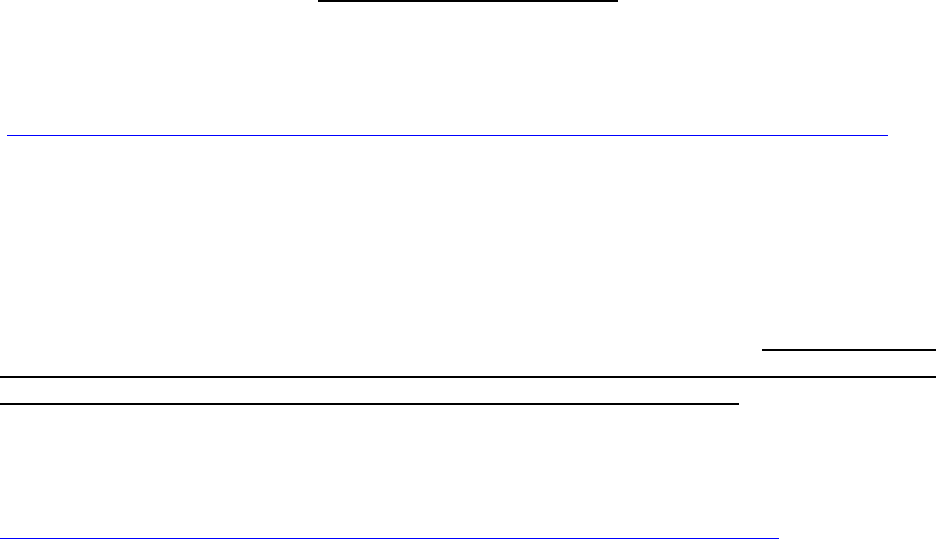
Page | 19
COMPREHENSIVE EXAMINATION
Eligibility and Dates
Eligible students (2
nd
year students who have passed preliminary examinations and are in good academic
standing) will write and orally defend an NIH F31-style research fellowship proposal
(https://www.niaid.nih.gov/grants-contracts/calix-sample-f31-application-and-summary-statement).
The Comprehensive Exam Committee will consist of five Microbiology Program Faculty members. Each
year, the Comps Core Committee will consist of the Program Director and one other Microbiology faculty
member who will serve on all comprehensive exam committees that year, and who will serve as Chairs of
the Comp Committees. The remaining three members of the Comprehensive Exam Committee should be
Microbiology Program faculty members, and are selected by the student in consultation with their thesis
mentor and the Program Director. The thesis mentor cannot serve on the Comprehensive Exam
committee, (but will be a member of the Thesis Committee). Students should plan to spend no more than
four weeks out of the laboratory for researching, discussing, and writing the proposal. The written portion
of the exam must be turned in to the Comprehensive Exam Committee two weeks prior to the oral exam
date and the oral exam must be completed between January 1
st
and May 15
th
. The date of the oral
examination should be scheduled by the student before April 1st.
Paperwork to Schedule the Exam
The forms to schedule this exam are in a packet on the Graduate School website at
http://www.CUAnschutz.edu/academics/colleges/Graduate-School/Pages/default.aspx and then click on
Resources for Current Students, Faculty and Staff, download both the Exam Request and the Application
for Candidacy forms. These materials should be downloaded the term prior to your anticipated
examination date. Your Application for Admission to Candidacy (see above) is due to your Program
Administrator at least three weeks prior to your expected examination date.
1. Download and complete the "Application for Admission to Candidacy".
2. Complete the "Exam Request" form.
3. Sign the application and obtain the signature of your program mentor on the "Application for
Admission to Candidacy" and of your Program Director on both the "Application for Admission to
Candidacy" and the "Request for Scheduling Exam" form. Electronic signatures preferred.
4. Submit both forms to the Graduate Program Administrator at least three weeks prior to the exam.
5. The Graduate School will prepare and distribute the "Notice of Examination" to you, the academic
program, and your committee members.
6. Your program will receive not only the "Notice" but all necessary forms to complete the
examination. Contact your program advisor regarding the makeup of the Examination Committee
as well as the format the exam will take.
YOU MUST BE REGISTERED FOR THE TERM IN WHICH THE COMPREHENSIVEEXAMINATION IS TAKEN.
If your examination occurs between terms, you will be required to register for the subsequent term.
Written Proposal
The research proposal should be about your intended thesis research that has been developed through
interactions with your mentor in the months preceding the comprehensive exam. You should propose 2-
3 years of work. It is important that you craft a solid hypothesis and 2-3 specific aims that test your
hypothesis. You will also need to demonstrate a significant depth and breadth of knowledge of the

Page | 20
relevant background to the problem you propose to study. The hypothesis, rationale, strategy, and
experimental design in the written proposal should be the work of the student. You may consult with:
your thesis mentor, the members of your comps committee, fellow graduate students, post-docs, other
faculty, and the published literature. When you discuss your proposed research with others, you must
inform them that you are discussing your comprehensive exam and indicate to them that your interactions
are for the purpose of developing your ideas or discussing how certain experiments might work or be
interpreted. However, faculty and other advisors should not edit the student’s written proposal for style
or content.
Format guidelines: Your research proposal should contain no more than 6 pages single-spaced (excluding
references), plus a separate page for Specific Aims. Margins are to be no less than 0.5 inches and the font
should be Arial with no smaller than 11 pt. Use of figures and schematics is strongly encouraged.
Proposals that fail to abide by format guidelines will be returned.
Organization of the Written Proposal
Abstract/specific aims. One separate page. Write an abstract that succinctly describes your project. It
should briefly introduce the problem and summarize the overall objectives and methods to be used. It
should serve as a concise and accurate description of the work when separated from the proposal
Research plan. 6 pages. The research plan is divided into the following sections: Significance; Innovation;
Approach.
Significance:
Briefly describe the background leading to the present proposal, critically evaluate existing knowledge,
and specifically identify the gaps the project is intended to fill. State concisely the significance- importance
and health relevance of the research described in the proposal by relating the specific aims to the broad,
long-term objectives.
In other words:
• Explain the importance of the problem or critical barrier to progress in the field that the proposed
project addresses.
• Explain how the proposed project will improve scientific knowledge, technical capability, and/or
clinical practice in one or more broad fields.
Innovation:
Point out inventive/original aspects of your proposed research, these may be conceptual or technical
advances to the field.
Clearly state a hypothesis and summarize how the proposal will test that hypothesis. Most top-notch NIH
grant applications are driven by well-focused and testable hypotheses. Generally, applications should ask
questions that prove or disprove a hypothesis rather than search for a problem or simply collect
information. Think of your hypothesis as the foundation of your application -- the conceptual
underpinning on which the entire structure rests. Your experimental results will prove or disprove your
hypothesis. Don't confuse your hypothesis with methods. Methods describe how you will perform your
experiments. Keep Your Hypothesis Focused. Choose an important, testable, focused hypothesis that
increases understanding of biologic processes, diseases, treatments, or preventions and is based on
previous research. Hypotheses should naturally provoke questions. Answering these questions then
becomes the goal of each of your specific aims.

Page | 21
Preliminary studies:
Describe the preliminary studies or data relevant to the proposal. This information can encompass
published literature from your laboratory, as well as data you have generated since you have been in the
laboratory. Figures and Tables should be annotated with citations that indicate who is credited with
generating the data, especially when it is someone other than yourself. Figures and Tables are to be
embedded within the document, not submitted as a separate section, and are included as part of the 6
page limit. Figures should be legible and should include a figure legend.
Approach:
• Describe the overall strategy, methodology, and analyses to be used to accomplish the specific
aims of the project. Describe the rationale for the proposed experiments and include sufficient
detail for how the experimentation is to be completed. Include how the data will be collected,
analyzed, and interpreted. Schematics, tables, and timelines can be very effective ways to present
complex experiments and working models.
• Discuss potential outcomes, problems and alternative strategies. Make sure that your proposed
experiments generate interpretable results allowing you to answer the question you propose.
When you have that answer, discuss what you will do next.
References. The written proposal should be well referenced. Proposals may use any standard citation
style, but you must include the names of all authors (in the same sequence as the publication), article and
journal title, book title, volume number, page numbers, and year of publication. References are not
included in the page limitations.
Oral Examination
It is the responsibility of the student to schedule the oral defense. Examinations will take the form of an
oral defense of the research proposal by the Comprehensive Exam committee. Your mentor will not
participate in the examination, although he or she may attend. Plan to present a 10 to 15-minute overview
of your proposal as a PowerPoint presentation. Summarize relevant background and preliminary data.
Present your hypothesis and specific aims. Broadly review your experimental plan. You will be questioned
about anything specifically and generally related to the proposal. It is wise for the student to review
broadly before the examination. Students are advised to take one or more practice oral exams from other
students and/or post-docs. Exams typically take 2-3 hours.
Outcomes
Pass
You must receive the affirmative votes of a majority of the members of the committee in order to pass.
Student continues to doctoral candidacy.
Pass with revisions/conditions
Revisions to the written proposal may be required by the examination committee. A pass with revisions
will require the student to address the comments of the review committee and resubmit the requested
revisions as outlined at the end of the oral examination. The comps revisions will be reviewed by the
committee and a Pass/Fail determination will be made. Other requirements, such as additional
coursework or directed reading, may also be made by the committee. The terms for completion of these
requirements will be determined by the committee at the end of the oral examination. In such cases, the
committee, via the chair, will provide written instructions regarding the conditions that must be met by
Page | 22
the student to receive a passing grade. You will be considered to have "passed" when these conditions
are met to the satisfaction of the committee. Failure to meet the conditions in the time specified will
result in failure of the examination.
Fail
In the event that you fail the examination, you are subject to immediate dismissal from the Graduate
School. At your program’s discretion, you may be allowed to retake the examination once. The retake will
be in a form designated by the committee and must be completed within six months. Failure of the second
exam will result in automatic dismissal.

Page | 23
THESIS COMMITTEE AND DISSERTATION
Thesis Committee
This is a committee of five (four faculty members plus the mentor) that will be formed during the second
year. The mentor and student recommend appropriate members and chair of the committee to the
Graduate Program Director. The committee must include at least one, but not more than two, faculty
members outside the Microbiology Graduate Program Faculty. Any outside members should have
expertise in the area of the student’s research.
The Thesis Committee must be constituted by the end of the second year and an initial meeting must be
conducted within 6 months of the completion of the comprehensive exam. The student is responsible for
scheduling a meeting of the committee (to include the entire committee or a majority of the committee
members) every six months, or more often if necessary, to review the student's plans and progress and
make suggestions to facilitate the research. The committee also will mediate conflicts that may arise
between the student and mentor. Individual committee members are available for consultation at any
time.
At least 48 hours before each meeting, the student should submit to each member of the committee a
written summary of the progress since the last meeting and plans for the next six months or more. If the
student is scheduled to give a research-in-progress seminar, it may be convenient to schedule the
committee meeting immediately after the presentation to avoid repetition.
After each committee meeting, the student and committee chair should promptly write minutes of the
meeting. The student and the committee chair should reach agreement on the document, after which
each committee member, the student, the Graduate Program Director, and the Graduate School
(submitted online) are provided a copy of the final report.
The Thesis Committee will help the student and mentor decide when enough original research and
submission of high-quality manuscripts describing the research have been done to allow the student to
write the dissertation. The Thesis Committee will not agree to a thesis defense date until at least one first-
author primary research article has been submitted to a peer-reviewed journal. One submitted paper is a
minimum requirement and not considered the norm for fulfilling sufficient research to earn a PhD.
In the last six months of the student's time at UCD, the student must comply with all the regulations of
the Graduate School regarding writing and submission of the thesis and the graduation procedures and
ceremonies. The Thesis Committee will read the dissertation and be responsible for the final examination
in defense of the dissertation. Students must allow at least 14 days after submitting the dissertation to
the thesis committee before the date of the thesis defense.
Dissertation
The dissertation is written by the student according to UCD guidelines and based on the student's original
research. The mentor will provide primary guidance on the scientific writing, and the student may also
consult with other faculty, in particular the Chairman of the Student's Thesis Committee. The Assistant
Dean of the Graduate School offers lectures throughout the year describing the required format of the
dissertation. It is advised that you attend this lecture. Examples of previous successful dissertations are
available in the Immunology and Microbiology Department. The student and mentor are responsible for
providing high quality illustrations for the dissertation and making copies of the final dissertation for the
Thesis Committee.

Page | 24
The student must provide the completed dissertation to the thesis committee at least two weeks prior to
the public oral presentation of the student’s dissertation research. The written dissertation is expected to
be in final form. The student is primarily responsible for the form of the dissertation. Detailed instructions
can be found under Student Services/Academic Resources/PhD resources at
http://www.CUAnschutz.edu/academics/colleges/Graduate-School/Pages/default.aspx. The student’s
mentor should carefully read and edit the dissertation prior to submission to the thesis committee. If the
written document is found to be poor by the thesis committee, the oral presentation and defense of the
thesis may be delayed.
The student is responsible for scheduling the date and location of the public oral presentation of the
dissertation research to the UCD community. On the scheduled date, the student will present a public
seminar on the dissertation research, followed by questions from the audience. The student will then
immediately take an oral Final Examination in Defense of the Dissertation administered by the Student's
Thesis Committee. The Committee may suggest changes needed for the dissertation to be acceptable as
well as examining the student on the content of the research. Each member of the Examination
Committee must sign approval or disapprove of the dissertation and the Oral Defense for submission to
the Graduate School. A simple majority vote of the committee determines the outcome of the
deliberations.
Once the dissertation defense is passed and all the requirements for completion of the dissertation have
been accomplished and approved, the student should provide a bound copy of the final version of the
dissertation with figures to the UCD library, the Immunology and Microbiology Department, and the
mentor. The specific requirements for the written document are available from the Graduate School. A
copy of the dissertation abstract must be submitted for microfilming.
The student is now eligible to receive the PhD degree. This degree can be awarded at the Spring UCD
graduation, or in August or December without a ceremony as described in the UCD Student Handbook.
Consult the Graduate School office for current rules regarding when requirements must be met and
complete in order to participate in graduation ceremonies.
Changing Advisors or Dismissal from Thesis Lab
While it is always the goal that a student who chooses a thesis advisor is able to complete the PhD thesis
with this advisor, this relationship does not always work out. While the Microbiology Program does not
have the authority to dictate whether or not a student continues in a particular thesis lab, the Program
does suggest certain guidelines in the interest of fairness to both student and mentor. Still, in the end, it
is at the discretion of both the student and advisor as to whether a student continues in the chosen thesis
lab.
Guidelines:
1) If a student is having trouble in the lab, such as in the form of conflicts with the mentor or lack of
mentoring, then the student should consult with the Microbiology Graduate Program Director
and/or the Chair of their Thesis Committee. This action should be taken as soon as problems arise.
A written summary of the meeting and issue should be documented.
2) If a mentor is unhappy with the performance, lab citizenship, work ethic or intellectual
engagement of a student (or any other problem), then the mentor should meet with the student
expressing these concerns. Consultation with the Graduate Program Director and/or the Chair of

Page | 25
the student’s thesis committee is also recommended. A written summary of the meeting and issue
should be documented.
3) In either of the cases above, the advisor and the student should then work out a plan of
remediation. This plan should be in writing, and it is advised that the plan be forwarded to the
Microbiology Graduate Program Director and the Chair of the student’s Thesis Committee.
Regular meetings between the student and advisor should be held, and satisfactory or
unsatisfactory improvements documented (copied to the Director and committee Chair).
4) Should a conflict reach the point where either the student or mentor decides that mentor-student
relationship should end, then the student has several choices. The student can find another
mentor within the Program, transfer to another lab in a different graduate program, choose to
leave the Program with a Master’s degree (subject to the rules of the Graduate School and
approval by the Thesis Committee), or choose to leave the Program.
The UC Denver Ombuds office is also available to students and mentors to help resolve conflicts and
misunderstandings. They are experts in problem resolution and are completely confidential. Please refer
to their website to find out more about their offerings
http://www.CUAnschutz.edu/about/departments/OmbudsOffice/Pages/OmbudsOffice.aspx
Program Transfer: For students matriculating directly into Basic Science Programs, there is an expectation
that you will remain in that Program. You have matriculated into that Program by virtue of having applied
and being accepted. Thus, there is a substantial bilateral commitment. Transferring from a Program, at
any point, is actively discouraged. If there are issues with an individual mentor or a perceived lack of
research laboratory options, it is expected that solutions will first be explored within the Program.
Program transfer will only be approved under exceptional circumstances, and then only after successful
completion of the preliminary exam at the end of the first year.
TRAINING TIME LIMIT
Doctoral students are expected to pass the comprehensive examination and advance to candidacy within
two years and are required to complete all degree requirements within seven years of matriculation.
Students are strongly encouraged to finish their degree requirements in less than seven years. During this
time, students are required to maintain satisfactory academic performance and to demonstrate
appropriate progress toward accomplishing the goals of their thesis projects, as evaluated by their mentor
and Thesis Committee as requirements for remaining in the Microbiology Graduate Program. Students
who fail to complete the degree in the seven-year period are subject to termination from the Graduate
Program in Microbiology upon recommendation of the Thesis Committee and Steering Committee. For a
student to continue beyond the seven-year limit, the Graduate Program Director must petition the
Microbiology Program Faculty and include 1) reasons why the student should be allowed to continue in
the program and 2) the amount of additional time that will be needed for completion of the degree, which
cannot exceed one additional year.
CAREER INFORMATION
The graduates of this program have gone into academic positions with teaching and research,
biotechnology companies, and government agencies. It is important for us to keep in contact with our
graduates both to provide help if needed and to help us in preparing applications for training grants which
require information on careers of program graduates.

Page | 26
Up-to-date information on job opportunities at the postdoctoral level and career positions is posted on a
bulletin board in the Immunology and Microbiology Department as well as on our career center website
at www.ucdenvercareercenter.org/index.html. In addition, job placement services are available from
professional societies such as ASM, ASV, ASCB, etc. Program faculty are of great help in finding
postdoctoral positions. The Graduate School sponsors Career Days for graduate students and postdoctoral
fellows to learn about possible career options.
The Microbiology Graduate Program makes every effort to allow the graduate students and postdoctoral
fellows to interact with faculty guests who present Microbiology Seminars. Often, they are invited to lunch
with the guest speaker after the seminar. In such meetings, the students and postdocs are the hosts for
the event, providing any requested information about the graduate programs here. In addition, they
should ask questions of the speaker about his/her own field of research, career path, and present
institution. To learn more about career opportunities outside of academics, you may attend seminars
offered by the Alternatives in Science Club as well as many networking events offered through the
Colorado BioScience Association (CBSA). Membership to CBSA is paid through the University, so most
events are covered.
Career Development Opportunities
The Graduate School at the University of Colorado Anschutz Medical Campus offers a variety of career
development workshops, seminars, and training programs. These opportunities are coordinated by the
Career Development Office (CDO) and trainings focus on the non-research-based skills that are essential
for any successful scientific career: communication, leadership and management, and professionalism.
These workshops and seminars are offered many times throughout the year and range from short one-
hour lunch sessions to multi-day sessions. More information about the workshops, additional career
development resources, and a schedule of events can be found on the CDO website:
www.CUAnschutz.edu/career-development.

Page | 27
GRADUATE STUDENT ACTIVITIES
Student Senate and Council
The Microbiology Graduate Program is allowed to elect representatives for Student Senate. Senate
oversees and votes on University-wide student issues. Also, all graduate students are welcome to attend
monthly Graduate Student Council (GSC) meetings. GSC acts on issues of importance to graduate
students. Any student may submit issues to Senate or GSC for consideration.
http://www.CUAnschutz.edu/life/services/studentlife/StudentGovernment/senate/Pages/form.aspx
Microbiology Student Governance
The Microbiology Program also has its own Student Council which elects a faculty liaison/President to
represent the Microbiology student body to the faculty, an Admissions and Recruitment Committee
member to assist in selecting new student candidates, a Graduate Student Retreat Committee Chair to
organize the upcoming year’s retreat, a student representative to the Enrichment Activities and Funds
committee, and a journal club coordinator for the Infectious Disease Journal Club (IDJC).
Annual University Student Research Forum & Poster Session
Each year a Student Research Forum is held to highlight the research contributions of graduate students
and medical students. Students from all programs present posters on their research. Faculty judge the
posters and presentations and financial awards are made. Food is provided and there is a large and
enthusiastic audience of faculty and students. Cash prizes are provided to students with the posters
considered the most outstanding by faculty reviewers.
http://www.CUAnschutz.edu/academics/colleges/medicalschool/education/community/StudentResearc
hforum/Pages/default.aspx
Graduate Student Retreat
Every autumn, all of the students and post-docs are invited to take part in the Immunology and
Microbiology student and post-doc retreat. The retreat is held at a mountain location within driving
distance, attendees are able to present either a poster or a small seminar if they wish, and awards are
presented to best presentations. The retreat is a time not only to share scientific ideas and practice
presentation skills, but also to enjoy the company of fellow department members while hiking through
colorful trails or enjoying a few hours in the local town.
Recruitment of New Students for the Graduate Program in Microbiology
Applications for admission will begin to arrive September 1st. The deadline for applications is December
1st. The Admissions Committee, composed of faculty and a student representative, will review written
applications and recommend approximately 10 students to be interviewed. Candidates will be invited to
interview with faculty and graduate students.
Students in the Microbiology Program are expected to help host the applicants at meals or social events,
interview them as requested, present posters on their own research, and provide tours of the campus.
Students with insight into applicant's qualifications are requested to submit comments to the Admissions
Committee. Students in the Microbiology Graduate Program will play an important role in welcoming new
graduate students, orienting them to UCD, and mentoring them during the first year of the graduate
program.
Page | 28
Other Activities
Social activities are available both campus wide, including welcome weekend and Fun In-The-Sun (FITS)
on Fridays during the summer, and other graduate program and departmental functions.

Page | 29
GRADUATE PROGRAM TRAINING FACULTY
David J. Barton, Professor
Department of Immunology and Microbiology
Ph.D., 1989, University of Toledo, Toledo Ohio
Research Interest: Picornaviruses and hepatitis C virus: viral replication and innate antiviral
immunity
Accepting Students: YES
J. David Beckham, Associate Professor
Department of Medicine, Division of Infectious Diseases,
MD, 2001, Baylor College of Medicine, Houston, Texas
Research Interest: Molecular Pathogenesis of neuroinvasive viral infections
303-724-4927, david.beckham@CUAnschutz.edu
Accepting Students: YES
Leslie Berg, Professor and Chair
Department of Immunology and Microbiology
Ph.D., 1986, University of California, Berkeley, CA
Research Interest: specializes in understanding how T cells develop and help fight infection
303-724-2214 [email protected]
303-724-8665 Sandy Duran, Assistant to the Chair
Accepting Students: YES
John C. Cambier, Distinguished Professor
Department of Immunology and Microbiology
Ph.D., 1975, University of Iowa
Research Interest: BCR Antigen Receptor Structure and signaling MHC Class II signaling Inhibitory
“Checkpoint” Receptor Signaling Molecular basis of B cell anergy Description of STING/MPYS, a
transducer of innate immune signals
303-724-8663, john.cambier@CUAnschutz.edu
Accepting Students: NO
Thomas B. Campbell, Professor
Division of Infectious Diseases, MICB
M.D., 1985, Southwestern Medical School, Dallas, Texas
Research Interest: Treatment and prevention of HIV infection and HIV-related complications
303-724-4929, thomas.campbell@CUAnschutz.edu
Accepting Students: unknown
Randall J. Cohrs, Research Professor
Department of Neurology
Ph.D., 1986, Southern Illinois University, Carbondale, Illinois
Research Interest: The Molecular Biology of Herpesvirus sylvilagus
303-724-4325, randall.cohrs@CUAnschutz.edu
Accepting Students: NO

Page | 30
Adela Cota-Gomez, Associate Professor
The Division of Pulmonary Sciences and Critical Care Medicine
Ph.D., 1999, University of Colorado Health Sciences Center
Research Interest: Mechanisms by which the HIV Tat protein modulates oxidative stress and
inflammation.
303-724-6085, adela.cota-gomez@CUAnschutz.edu
Accepting Students: YES
Richard E. Davis, Professor
Biochemistry and Molecular Genetics
Co-Director, RNA Bioscience Initiative
Ph.D., 1982, The University of Massachusetts, Amherst
Research Interest: Programmed DNA elimination and novel RNA functions
303-724-3226, richard.davis@CUAnschutz.edu
Accepting Students: NO
Kelly S. Doran, Professor
Department of Immunology and Microbiology
Ph.D., 1998, University of California, San Diego
Research Interest: Host - pathogen interactions in the central nervous system (CNS) and the
female reproductive during infection and colonization.
kelly.doran@CUAnschutz.edu
Accepting Students: YES
Breck Duerkop, Assistant Professor
Department of Immunology and Microbiology
Ph.D., 2009, University of Washington
Research Interest: Viral/bacterial metagenomics of complex host-associated microbial
environments
breck.duerkop@CUAnschutz.edu
Accepting Students: YES
Sonia C. Flores, Professor
Division of Pulmonary Sciences & Critical Care Medicine
Ph.D., 1988, University of South Alabama, Mobile
Research Interest: Mechanisms of HIV-1 Tat and Nef-dependent vascular endothelial cell
phenotypic changes; T. whipplei lung pathogenesis.
303-724-6084, sonia.flores@CUAnschutz.edu
Accepting Students: NO
Daniel N. Frank, Associate Professor
Division of Infectious Disease
Ph.D., 1993, University of California, San Francisco
Research Interest: The study of the human microbiome in health and a variety of diseases.
303-724-5536, daniel.frank@CUAnschutz.edu
Accepting Students: maybe

Page | 31
J. Kirk Harris, Associate Professor
Division of Pediatrics Pulmonary Medicine
Ph.D., 2005, University of California, Berkeley
Research Interest: Respiratory microbiota and model system microbiota
720-777-4943, johnathan.harris@CUAnschutz.edu
Accepting Students: NO
Jay Hesselberth, Associate Professor
Biochemistry and Molecular Genetics
Ph.D., 2003, University of Texas, Austin
Research Interest: genomics of DNA and RNA repair
303-724-5384, jay.hesselberth@CUAnschutz.edu
Accepting Students: YES
Alexander R. Horswill, Professor
Immunology and Microbiology
Ph.D., 2001, University of Wisconsin-Madison
Research Interest: Bacterial pathogenesis including quorum-sensing signal production,
biofilm development mechanisms, virulence factor function in host-pathogen.
Accepting Students: YES
Edward N. Janoff, Professor
Division of Infectious Diseases, Mucosal and Vaccine Research Colorado Program (MAVRC)
M.D., 1981, University of Arizona
Research Interest: Mucosal immunity; HIV transmission and vaccine; pneumococcal infections
and vaccine; B cell regulation.
303-724-4936, edward.janoff@CUAnschutz.edu
Accepting Students: YES
Mark Johnston, Professor
Department of Biochemistry and Molecular Genetics
Ph.D., 1980 University of California-Berkeley
Research Interest: Nutrient sensing and signaling, yeast genetics, functional genomics.
303-724-3203, http://mark.johnston@CUAnschutz.edu
Accepting Students: unknown
Marijke Keestra-Gounder, Assistant Professor
Department of Immunology and Microbiology
Ph.D., 2008, Utrecht University (The Netherlands), Department of Infectious Diseases and
Immunology
Research Interest: The major focus of my research program is to elucidate pathways of innate
immunity that can distinguish harmless microbes from pathogens, thereby enabling the host to
mount responses that are commensurate with the threat.
303-724-8668, marijke.keestra-gounder@CUAnschutz.edu
Accepting Students: YES

Page | 32
Jeffrey S. Kieft, Professor
Department of Biochemistry & Molecular Genetics
Ph.D., 1997, University of California, Berkeley
Research Interest: Discovery, structure, and function of RNA, RNA-protein, and RNA-ribosome
complexes important for infection by viruses.
303-724-3257, jeffrey.kieft@CUAnschutz.edu
Accepting Students: YES
Kristine A. Kuhn, Assistant Professor
Division of Rheumatology / Barbara Davis Center for Diabetes
Ph.D., 2005, M.D., 2007 University of Colorado Health Sciences Center
Research Interest: Microbiome and mucosal immunity in the development of autoimmune
diseases
303-724-8258, kristine.kuhn@CUAnschutz.edu
Accepting Students: YES
Laurel L. Lenz, Professor
Department of Immunology and Microbiology
Ph.D., 1998, University of Washington, Seattle
Research Interest: Molecular mechanisms of bacterial pathogenesis, host-bacteria interactions,
host-directed therapeutics, innate immunity, interferons, Listeria monocytogenes.
303-724-8676, laurel.lenz@CUAnschutz.edu
Accepting Students: YES
Catherine Lozupone, Assistant Professor
Division of Biomedical Informatics and Personalized Medicine
Ph.D. 2007, University of Colorado, Boulder
Research Interest: Microbiology of the human gut and impacts on health. The development of
bioinformatics techniques for analysis of marker gene and genomic sequence data.
Accepting Students: YES
Thomas E. “Tem” Morrison, Associate Professor & Director, Graduate Program in Microbiology
Department of Immunology and Microbiology
Ph.D., 2004, University of North Carolina-Chapel Hill
Research Interest: Immunological mechanisms that influence the clearance or persistence of
arboviruses and protozoan parasites; molecular mechanisms by which pathogens counteract
host innate and adaptive immune responses.
303-724-4283, thomas.morrison@CUAnschutz.edu
Accepting Students: YES
Maria Nagel, Associate Professor
Department of Neurology
M.D., 2002, University of Illinois, Urbana –Champaign
Research Interest: Clinical and basic research aspects of stroke caused by varicella zoster virus
(VZV).
303-724-4319, maria.nagel@CUAnschutz.edu
Accepting Students: maybe

Page | 33
Brent E. Palmer, Associate Professor
Division of Allergy and Clinical Immunology
Director, ACI/ID and ClinImmune Labs Clinical and Research Flow Cytometry Facility
Technical Director of the Center for AIDS Research Immunology Core
Ph.D., 1999, Colorado State University
Research Interest: Delineating the effects of HIV infection on T cell function.
303-724-7203, brent.palmer@CUAnschutz.edu
Accepting Students: unknown
Vanessa Phelan, Assistant Professor
Department of Pharmaceutical Sciences
Skaggs School of Pharmacy & Pharmaceutical Sciences
Ph.D., 2011, Vanderbilt University
Research Interest: The Interactive Metabolome of Polymicrobial Biofilms.
303-724-3291, vanessa.phelan@CUAnschutz.edu
Accepting Students: unknown
Eric M. Poeschla, Professor
Tim Gill Professor of Medicine, Chief of Infectious Diseases
M.D., 1985, Yale University School of Medicine
Research Interest: Molecular virology and pathogenesis of RNA viruses including HIV-
1, positive strand RNA viruses, innate immunity to viruses, including viral nucleic acid sensing.
Viral vectors, site-specific gene targeting.
303-724-8770, eric.poeschla@CUAnschutz.edu
Accepting Students: YES
Stefan Pukatzki, Professor
Department of Immunology and Microbiology
Ph.D., 1999, Columbia University of College of Physicians and Surgeons
Research Interest: The molecular mechanisms of microbial pathogens. Understanding the
molecular mechanisms that allow bacterial pathogens to cause disease.
303-724-9033, stefan.pukatzki@CUAnschutz.edu
Accepting Students: NO
Rosemary Rochford, Professor
Department of Immunology and Microbiology
Research Interest: Human herpesvirus infections and immune responses. Malaria immunology
and drug development.
303-724-9960, rosemary.rochford@CUAnschutz.edu
Accepting Students: YES
Mario L. Santiago, Associate Professor
Division of Infectious Diseases, Department of Medicine
Ph.D., 2003, University of Alabama at Birmingham
Research Interest: Innate host restriction and adaptive immunity against pathogenic retroviruses
(Friend retrovirus, SIV and HIV).
303-724-4946, mario.santiago@CUAnschutz.edu
Accepting Students: YES

Page | 34
Michael J. Schurr, Associate Professor
Department of Immunology and Microbiology
Ph.D., 1992, University of North Texas, Denton, Texas
Research Interest: Transcriptional regulation and molecular biology of bacterial virulence
factors.
303-724-4221, michael.schurr@CUAnschutz.edu
Accepting Students: maybe
Kenneth L. Tyler, Professor and Chair
Department of Neurology
M.D., 1978, Johns Hopkins School of Medicine
Research Interest: Pathogenesis of viral infections of the Central Nervous System (West Nile,
Japanese encephalitis, Zika, Enteroviruses, Reoviruses)
303-724-4327, ken.tyler@CUAnschutz.edu
Accepting Students: YES
Linda F. van Dyk, Professor & Vice Chair
Department of Immunology and Microbiology
Ph.D., 1994, University of Texas Southwestern, Dallas, Texas
Research Interest: Genetic and molecular approaches to infection and pathogenesis by
lymphotropic herpesviruses.
303-724-4207, linda.vandyk@CUAnschutz.edu
Accepting Students: YES
Andrés Vázquez-Torres, Professor
Department of Immunology and Microbiology
DVM, 1988, University of Cordoba, Spain
Ph.D., 1996, University of Wisconsin, Madison
Research Interest: Molecular and redox determinants in the pathogenesis of intracellular
bacteria.
303-724-4218, andres.vazquez-torres@CUAnschutz.edu
Accepting Students: YES
Martin I. Voskuil, Associate Professor
Department of Immunology and Microbiology
Ph.D., 1998, University of Wisconsin, Madison
Research Interest: Mycobacterium tuberculosis and Burkholderia pseudomallei mechanisms of
latency and drug tolerance.
303-724-4219, martin.voskuil@CUAnschutz.edu
Accepting Students: YES

Page | 35
GRADUATE PROGRAM STAFF
Tem Morrison, Ph.D., Program Director
Michele Parsons, Program Administrator
RC1N-9112 Michele.Parsons@CUAnschutz.edu O: 303-724-0107 C: 720-352-8655
Miranda Mcdevitt, Program Coordinator
RC1S-9112 Miranda.Mcdevitt@CUAnschutz.edu O: 303-724-3350
GRADUATE PROGRAM COMMITTEES
Microbiology Graduate Program Director
Tem Morrison
Program Steering Committee
Leslie Berg
John Cambier
Kelly Doran
Marijke Keestra-Gounder
Tem Morrison
Michele Parsons
Mike Schurr
Hadrian Sparks – Student Rep
Andres Vazquez-Torres
Linda van Dyk
Martin Voskuil
Admissions and Recruitment Committee
Kelly Doran, Chair
Dave Beckham
Breck Duerkop
Alex Horswill
Tem Morrison
Marty Voskuil
Ari Simenauer (Admissions)
Norhan Alhajjar (Recruitment)
Enrichment Activities and Funds Committee
Michele Parsons
Ashley Knox
Pre-Comps Advisory Committee
Linda van Dyk, Chair
Tem Morrison
Mike Schurr
Prelim Committee
Mike Schurr, Chair
Comps Core Committee
Dave Barton
Tem Morrison
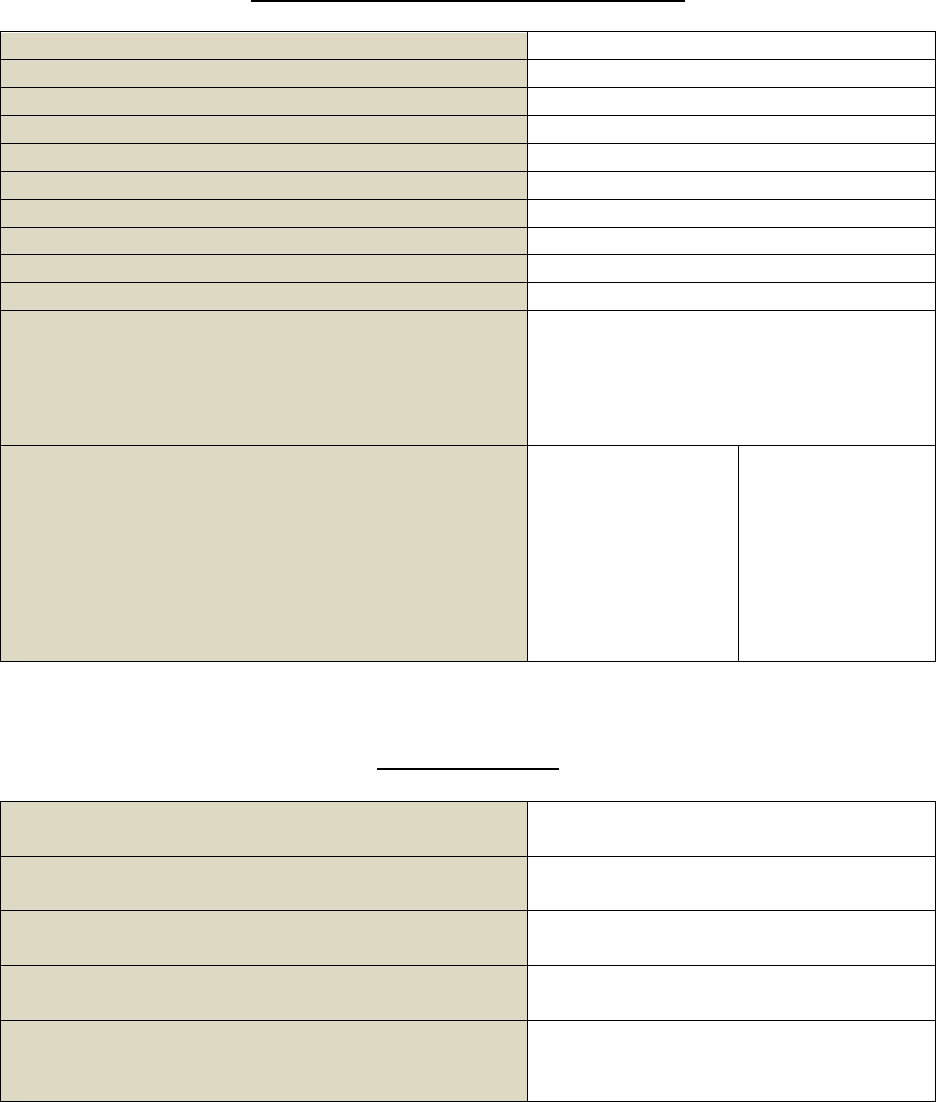
Page | 36
STUDENT LEADERSTHIP AND REPRESENTATIVES
President and Steering Committee Representative
Hadrian Sparks
Admissions Committee
Ari Simenauer
Student Recruitment Coordinator
Norhan Alhajjar
B-Rip (Student Data Group) / Chalk Talks
Rachel Neve
Enrichment Funds
Ashley Knox
Immunology Student Organization
Monica Graham
Infectious Disease Journal Club (IDJC)
Joshua Frost
Student Communications Coordinator
Ashley Knox
Student Retreat Coordinator *
Monica Graham
Student Social Coordinator (includes Welcome BBQ*)
Jonathan Mendez
Student Invited Speaker Coordinator
Zoe O’Donoghue (18-20)
Frank Santoriello (18-20)
Morgan Brown (19-21)
Cydney Johnson (19-21)
Graduate Student Mentors & Mentees
Mentor
Hadrian Sparks
Rachel Neve
Haider Manzer
Brendan Monogue
Haider Manzer
TBD
TBD
Mentee
Anna Burnet
Emma Culbertson
Klara Keim
Cormac Lucas
Laurie Lyon
Krista Mills
Frances Li (MSTP)
*Joint event with the Graduate Program in Immunology
COURSE DIRECTORS
Microbiology in Biomedical Research (IDTP 7810)
Mike Schurr
Microbiome in Health and Medicine (IDTP 7810)
Breck Duerkop
Molecular Virology and Pathogenesis (MICB 7701)
Linda van Dyk
Mario Santiago
Molecular Mechanisms of Bacterial Disease (MICB
7703)
Martin Voskuil
Alex Horswill
Student RIP Coordinators
Jing Wang
Jordan Jacobelli
Michele Parsons/Miranda Mcdevitt
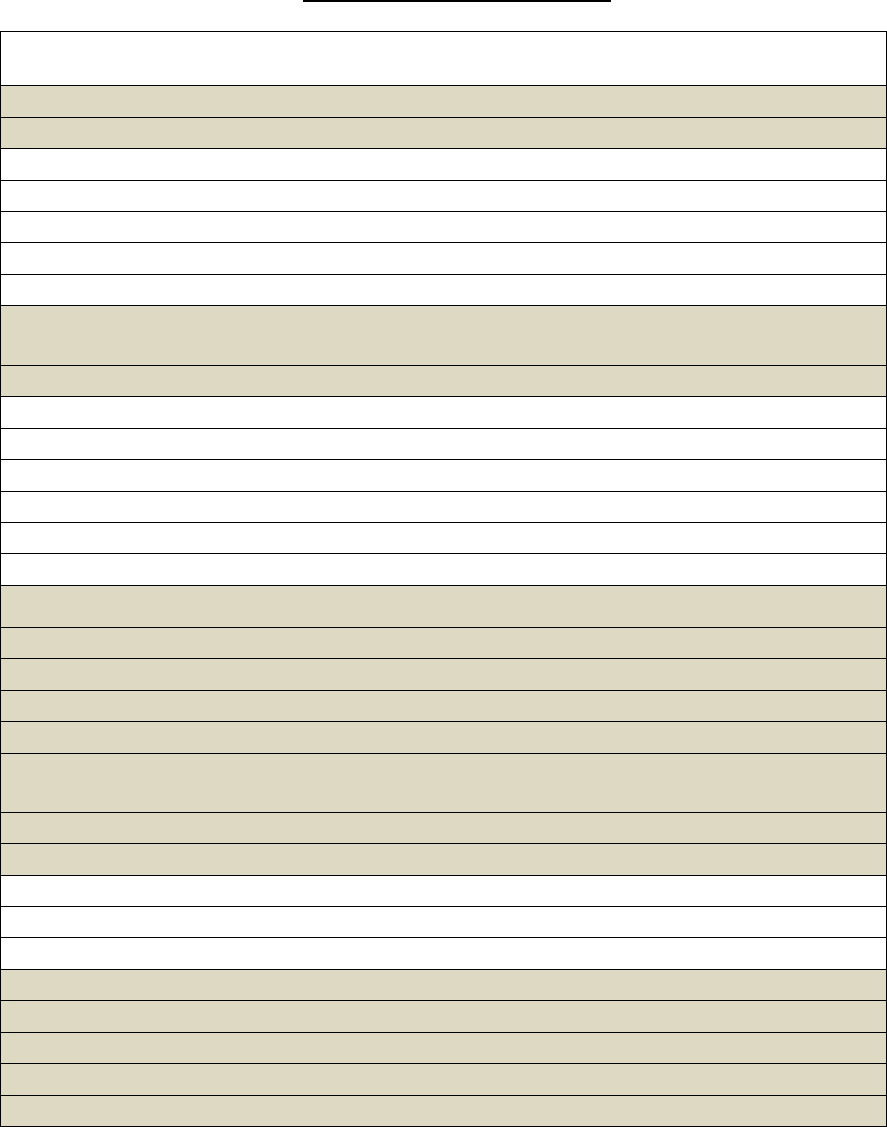
Page | 37
GRADUATE PROGRAM STUDENTS
Name
All Accounts
@CUAnschutz.edu
Matriculation
Year
Lab
Christopher Covey
Christopher.Covey
2013
Voskuil
Ricardo Villarreal
Ricardo.Villarreal
2013 (MSTP) T
Doran
Abigail Armstrong
Abigail.Armstrong
2014
Lozupone
Katie Arnolds
Kathleen.Arnolds
2014
Lozupone
Jennifer Berger
Jennifer.Berger
2014
Van Dyk
Sarah Born
Sarah.Born
2014
Voskuil
Zoe O'Donoghue
Zoe.Odonoghue
2014 (BSP)
Kieft
Gabi
Samayoa-Reyes
Gabriela.SamayoaReyes
2015
Poeschla
Ari Simenauer
Ari.Simenauer
2015
Cota-Gomez
Ashley Knox
Ashely.Knox
2016 (BSP)
Van Dyk
Casey Martin
Casey.G.Martin
2016
Lozupone
Rachel Neve
Rachel.Neve
2016
Phelan
Frank Santoriello
Francis.Santoriello
2016
Pukatzki
Hadrian Sparks
Hadrian.Sparks
2016
Beckham
Sarah Stonedahl
Sarah.Stonedahl
2016 (BSP)
Tyler
Norhan Alhajjar
Norhan.alhajjar
2017
Doran
Morgan Brown
Morgan.M.Brown
2017 (BSP)
Horswill
Joshua Frost
Joshua.Frost
2017 (BSP)
Tyler
Monica Graham
Monica.Graham
2017
Beckham
Cydney Johnson
Cydney.Johnson
2017 (BSP)
Duerkop
Jonathan Mendez
Jonathan.Mendez
2017
Keestra-
Gounder
Brendan Monogue
Brendan.Monogue
2017
Beckham
Matthew Szucs
Matthew.Szucs
2017
Kieft
Hailey Kinsland
Hailey.Kinsland
2018
Phelan
Haider Manzer
Haider.Manzer
2018
Doran
Frances Li
Frances.Li
2018 (MSTP)
Morrison
Anna Burnet
Anna.Burnet
2019
Rotating
Emma Culbertson
Emma.Culbertson
2019
Rotating
Klara Keim
Klara.Keim
2019
Rotating
Cormac Lucas
Cormac.Lucas
2019
Rotating
Laurie Lyon
Laurie.Lyon
2019
Rotating
T = Transferred into program
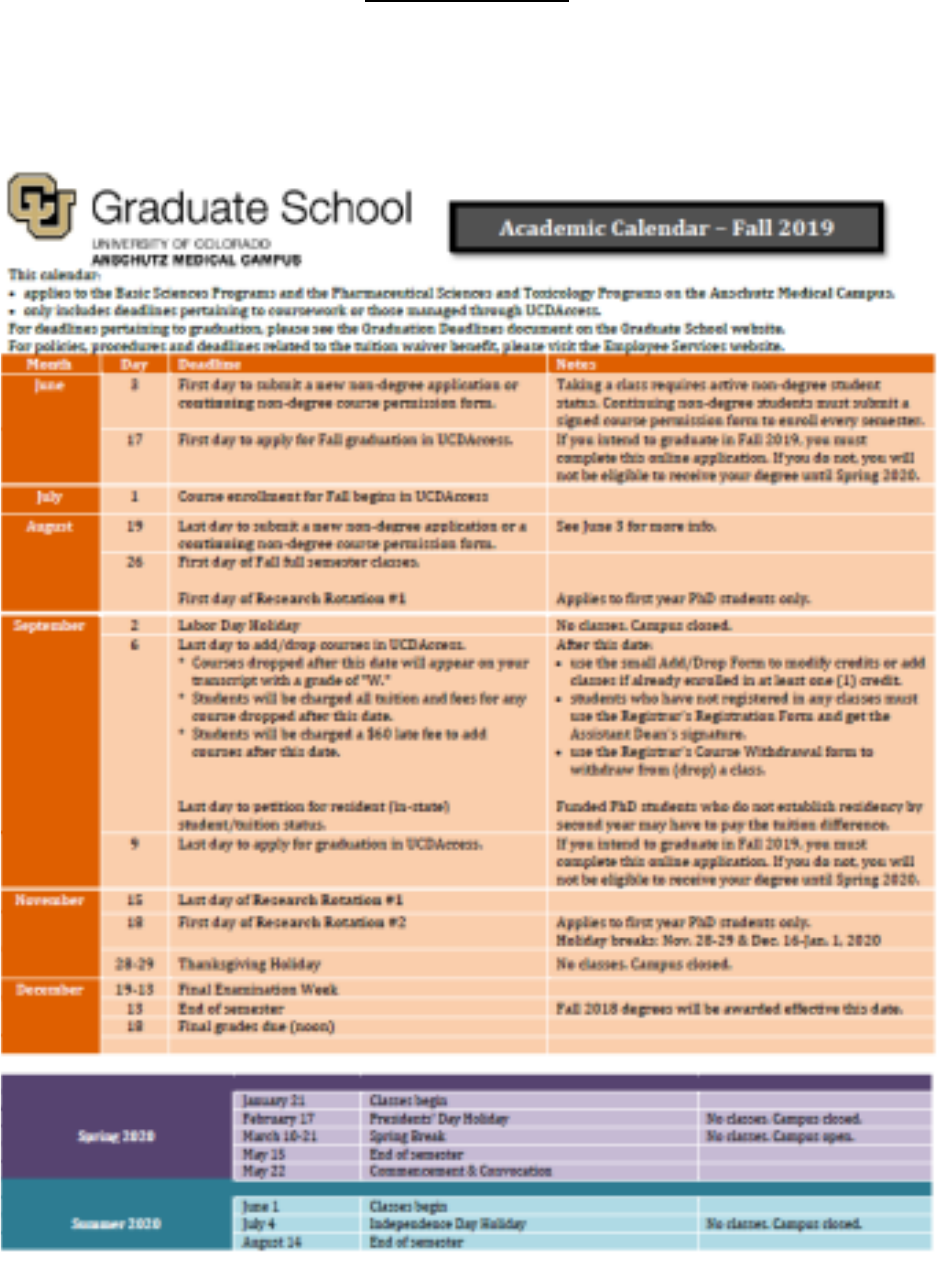
Page | 38
ACADEMIC CALENDAR
Graduate School
Basic Sciences Programs
Pharmaceutical and Sciences and Toxicology Programs
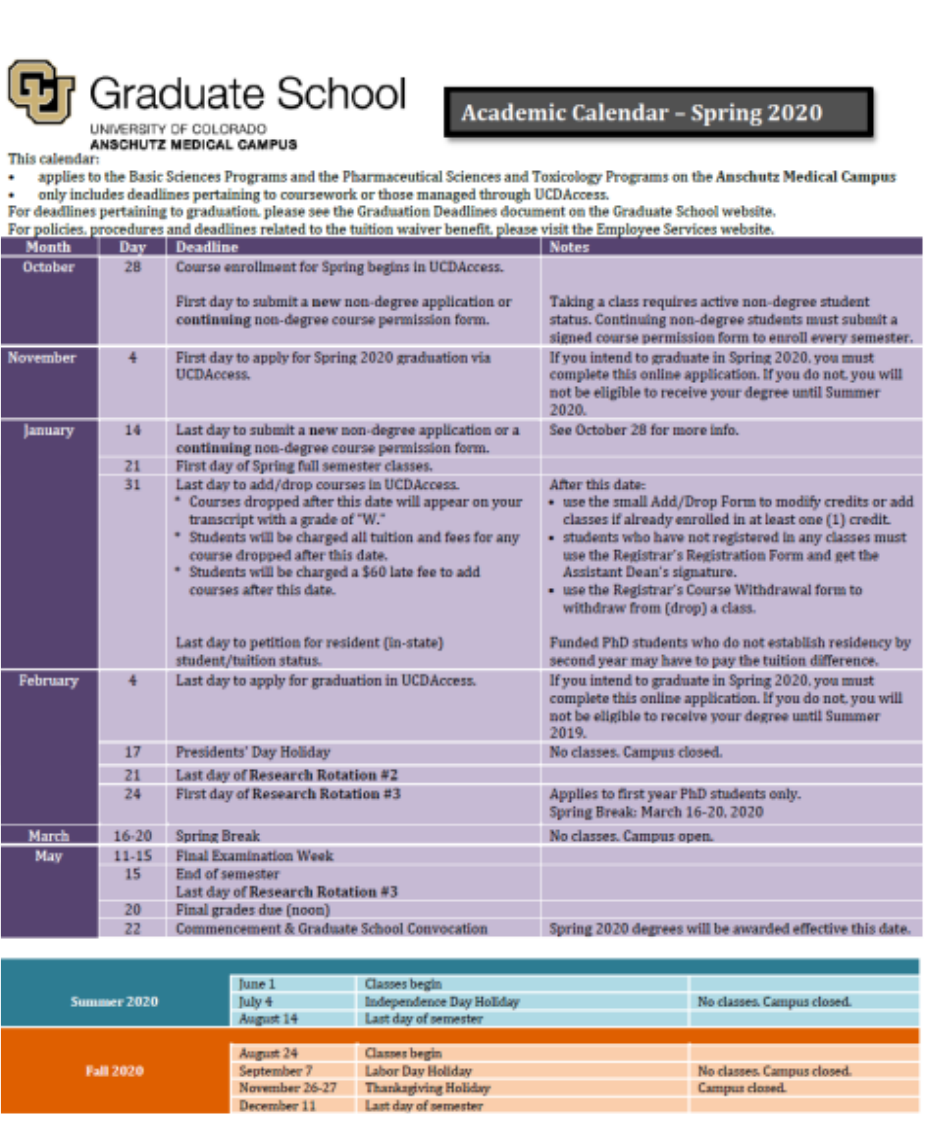
Page | 39
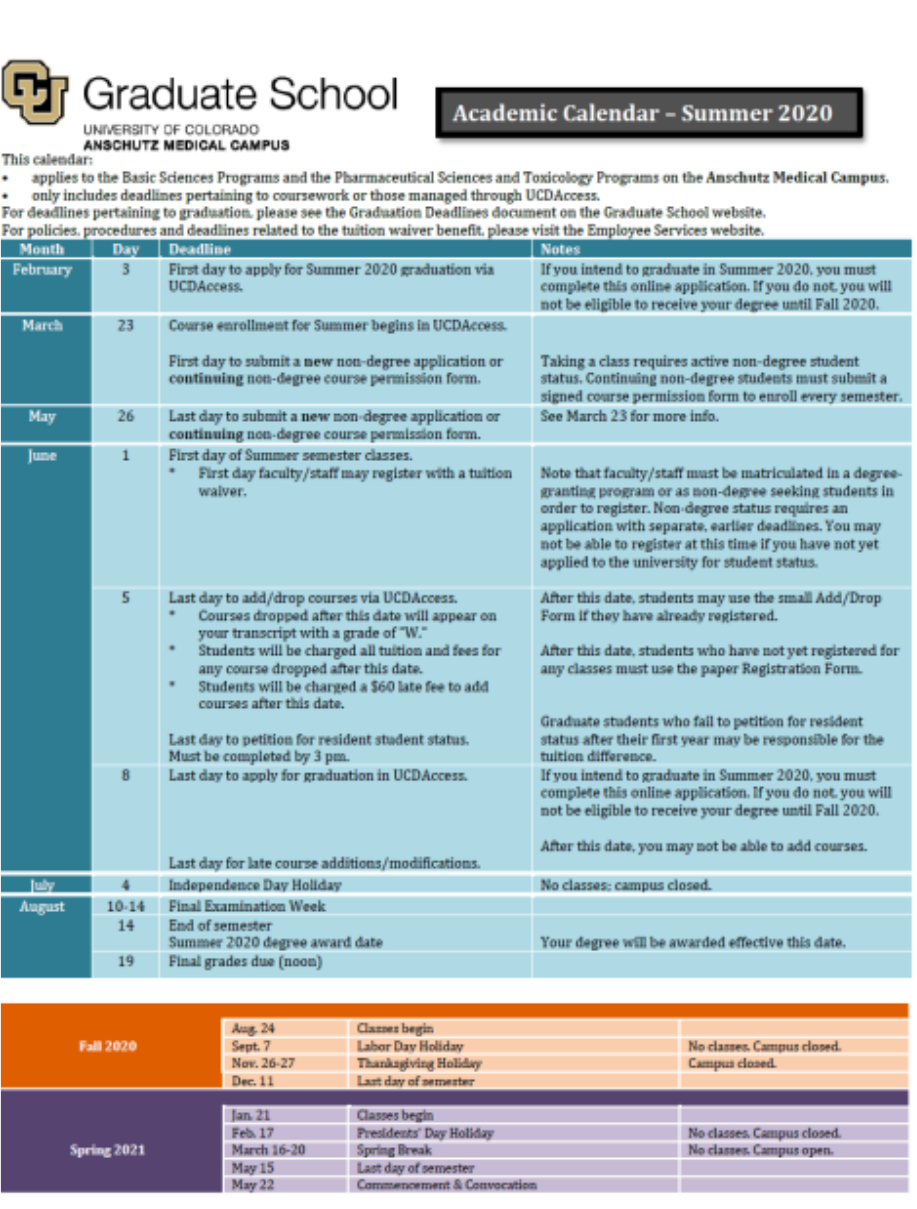
Page | 40

Page | 41
CONTACT INFORMATION
Graduate School
David Engelke, Ph.D., Dean
Lauren Field, Executive Assistant to the Dean 303-724-2911
Inge Wefes, Ph.D., Associate Dean
Shawna Cox, PhD., Assistant Dean, Student Admissions and Support 303-724-2915
Teresa Bauer-Sogi, Program Manager, Admissions and Student Progress 303-724-2915
University of Colorado Anschutz Medical Campus
Graduate School
Mail Stop C296
Building 500, W5107
13001 E. 17
th
Place
Aurora, CO 80045
Email: graduate.school@CUAnschutz.edu
Immunology & Microbiology Department 303-724-4224
Fax: 303-724-4226
Leslie Berg, Ph.D., Department Chair
Sandra Duran, Executive Assistant to Dr. Cambier 303-724-8664
Laurel Lenz, Ph.D., Director of the Graduate Program in Immunology 303-724-8676
Lee Reinhardt, Ph.D., Associate Director of the Graduate Program in Immunology 303-270-2717
Tom Shallow, Director of Finance and Administration 303-724-8664
Andrea Edwards, Department Accounting and Human Resource liaison 303-724-4431
Gwen Frederick, Department Receptionist and lab supplies purchaser 303-724-4224
JC Haller, Laboratory Resources Coordinator 303-724-4245
Mike Elmore, IT Systems Administrator 303-724-9033
Microbiology Program 303-724-0107
Tem Morrison, PhD., Director of the Graduate Program in Microbiology 303-724-4283
Michele Parsons, Program Administrator (Immunology & Microbiology programs) 303-724-0107
Miranda McDevitt, Program Coordinator (multiple PhD & Masters programs) 303-724-3350
University of Colorado Anschutz Medical Campus
Graduate Program in Microbiology
Mail Stop 8333
12800 East 19
th
Avenue
Aurora, CO 80045

Page | 42
APPENDIX 1
Requirements for BSP Students joining Microbiology
Mentor Discussion
A Biomedical Sciences Program (BSP) student who completes a rotation in the lab of a Microbiology
Graduate Program faculty member and wishes to work in that lab will discuss options with the faculty
member. If the faculty member would like to have the student join the lab, then the student and faculty
member will discuss which graduate program that the faculty member is associated with (e.g.,
Microbiology, Molecular Biology, etc.) would be most suitable for the student. One important factor is the
formal course requirements.
Program Approval
If the faculty member and student decide that the student would ideally get his/her degree from the
Microbiology Graduate Program, they must request approval by the Microbiology Graduate Program
faculty. A majority vote of the Microbiology Steering Committee will decide whether or not to accept the
student into the Program.
Time of Transfer
Students normally transfer from the BSP program into other programs on July 1.
Coursework
In order to take the Comprehensive Examination, all students in the Microbiology Graduate Program are
required to have taken and passed with a grade of B or better at least 30 academic credits. This must
include the core courses (8.5 credits), Science as a Profession (Ethics) (1 credits), 3 laboratory rotations (1
credit each) and at least 7.5 additional credit hours of approved elective courses. Microbiology students
are required to take MICB 7701, MICB 7703 and MICB 7621, and BSP students that wish to join the
Graduate Program in Microbiology are encouraged to take as many of these courses as possible. The
remaining credits may consist of research credits. Acceptable courses to fulfill the Microbiology elective
requirements are listed in Appendix 2.
The BSP program allows BSP students to select from a wide range of electives offered by the Graduate
School to satisfy their course requirements and preparation for the preliminary examination. BSP students
who select the Graduate Program in Microbiology would typically do so at the end of the second semester
of their first year, but they must decide which electives to take before the second semester or classes
would need to be taken in their second year.
Preliminary and Comprehensive Exams follow Microbiology Program guidelines.
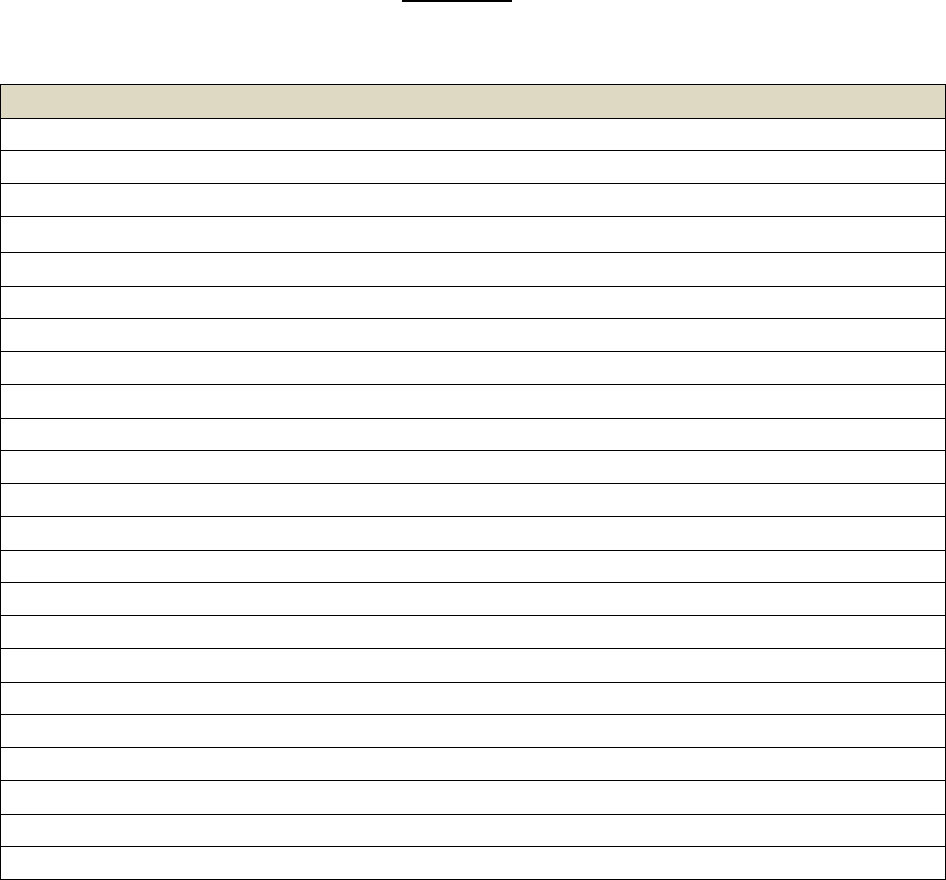
Page | 43
APPENDIX 2
Courses and Electives for Microbiology Graduate Program Students
Course
Credits
Semester
MICB 7703
Molecular Mechanisms of Bacterial Disease
3
Spring
MICB 7701
Molecular Virology and Pathogenesis
3
Spring
BIOS 6606
Statistics for the Basic Sciences
3
Fall
BMGN 7640
Scientific Programming
2
Spring
BMST 7350
Proteins
3
Spring
BMST 7354
Structural Analysis of Biomolecules 1
2
Spring
CANB 7600
Cancer Biology
3
Spring
CANB 7620
Histophysiology
3
Spring
CPBS 7606
Statistics for the Basic Sciences
3
Fall/Spring
CPBS 7711
Bioinformatics I
4
Fall
CSDV 7605
Stem Cells and Development
4
Spring
HMGP 7600
Survey of Human Genetics
3
Spring
HMGP 7620
Genomics
2
Spring
IDPT 7646
Tissue Biology and Disease Mechanisms
3
Fall
IMMU 7602
Special Topics in Tumor Immunology
1
Spring
IMMU 7607
Science as a Profession ( Ethics)
1
Fall
IMMU 7630
Overview of Immunology
2
Fall
IMMU 7662
Immunology
6
Spring
MOLB 7616
Topics in Molecular and Cellular Biology
1
Spring
MOLB 7800
Advanced Topics in Molecular Biology
1-4
Spring
NRSC 7600
Cellular and Molecular Neurobiology
3
Fall
PHCL 7605
Ethics in Research
1
Fall
PHCL 7606
Receptors and Cell Signaling
3
Spring
In order to be designated as a full time student, graduate students must be registered for 5 graduate
credit hours in the fall and spring semesters, or 3 graduate credit hours in the summer semester. A
doctoral student who is enrolled in one thesis credit hour (8990) in any semester is also considered full
time.

Page | 44
APPENDIX 3
Graduate School Policy for Vacation and Leave for PhD Candidates
Graduate School is a privilege; working in the biomedical research/academic field, whether as a graduate
student, a postdoctoral fellow, or an independent investigator, is a time-honored and challenging
profession that requires a high level of commitment and responsibility. Students who receive full-support
stipends from UCD Ph.D. programs are required to pursue their training on a full-time basis, devoting each
day of the normal work week, plus any additional time required by their research projects and academic
courses. Additionally, for a student to maintain full-time student status, the Graduate School has
established the following guidelines for vacation and leave time. These represent the leave to which a
graduate student is entitled; however, research demands and commitment to graduate studies often
result in students using less than the allotted leave. Individual graduate programs might not have a
formalized system for accounting for vacation and sick leave; if so, vacation and leave monitoring falls
under the honor system and is the responsibility of the student.
Vacation and Holidays
Graduate students shall receive all University holidays and no more than 14 calendar days (counting all
days Monday through Sunday) of vacation per annum, with no year-to-year accrual. Students shall
continue to receive stipends during vacations and holidays. In the graduate school at UCD, the times
between academic terms and the summers are considered active parts of the training period and are not
necessarily free times. However, students taking courses are expected to attend all classes and take all
exams as scheduled. They should not take vacations when classes or exams are scheduled. For advanced
students, vacation time should be arranged with the dissertation advisor.
Sick Leave and Other Leave
Graduate students may continue to receive stipends for up to 15 calendar days (counting all days Monday
through Sunday) of sick leave per annum, with no year-to-year accrual. Under exceptional circumstances,
additional sick days may be granted following a written request and approval by the student’s program
director. Sick leave may be used for the medical conditions related to pregnancy and childbirth.
Parental Leave – Graduate students may also receive stipends for up to 30 calendar days (counting all
days Monday through Sunday) of parental leave per annum for the adoption or the birth of a child. Either
parent is eligible for parental leave. Parental leave must be approved by the student’s program director.
Sick leave may not be used to supplement parental leave, except as noted above.
Unpaid Leave – Individuals requiring more than 15 calendar days of sick leave or more than 30 calendar
days of parental leave, must seek approval from their program for an unpaid leave of absence. Approval
for a leave of absence must be requested in advance by the student and approved by the program. The
leave period and conditions must be documented, both at the time of leave and at the time of re-entry
into the program. A copy of this agreement must be submitted to the Graduate School.
Leave of Absence – Leaves of absence are arranged with and approved by Program Directors. The
Graduate School should be informed by the student. A leave of absence may be approved for a maximum
of one year. Students who fail to register or submit a Statement of Academic Intent after an absence of
one academic year will be withdrawn and required to reapply for admission to the Graduate School
through their program and be considered with all other applicants. A leave of absence does not
automatically extend the time limit set forth for graduation. Doctoral students who have passed their

Page | 45
Comprehensive Examination are required to be registered continually for the Fall and Spring semesters.
Failure to do so will result in the student being required to retake the Comprehensive Examination or
reapply to the Graduate School. An official leave of absence may modify this registration requirement
during the leave period.
Termination – Upon graduation or termination a graduate student forfeits all unused annual and sick
leave; payment may not be made from grant funds (training grants or research grants) for leave not taken.
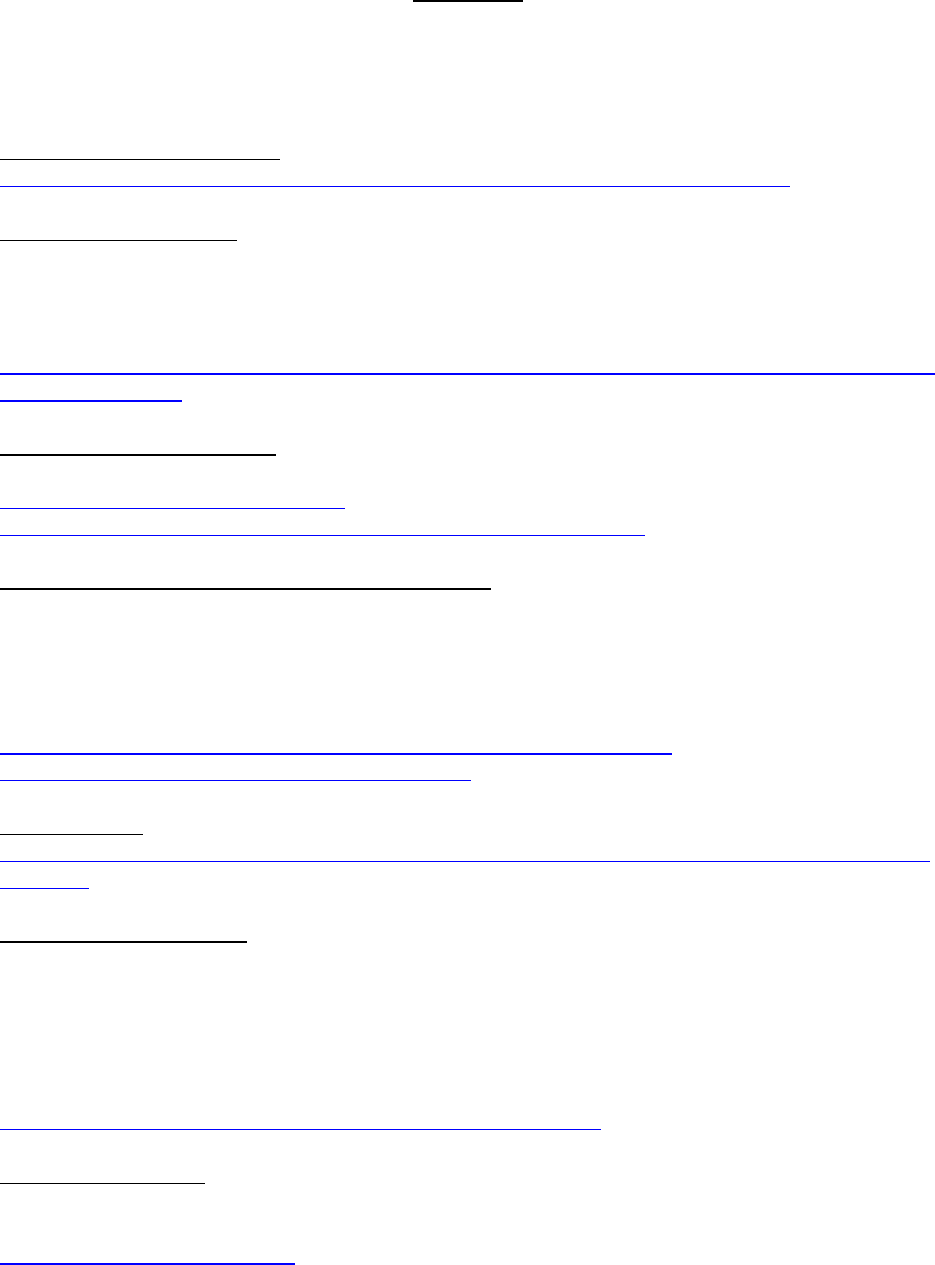
Page | 46
APPENDIX 4
RESOURCES FOR NEW GRADUATE STUDENTS
Anschutz Medical Campus
Animal Facility/Safety Training
http://www.CUAnschutz.edu/academics/research/AboutUs/animal/Pages/Training.aspx
Bookstore (303-724-2665)
Located in Education 2 South, first floor. Special bookstore charge accounts are attainable; students
should request information at the front registers. The bookstore accepts VISA, MasterCard, American
Express, and personal checks with appropriate identification. Bookstore hours are extended during the
first week of each quarter.
https://cuanschutz.bncollege.com/webapp/wcs/stores/servlet/BNCBHomePage?storeId=87741&catalog
Id=10001&langId=-1
Bursar’s Office (303-724-8032)
Located in Education 2 North, room 3120A
http://www.CUAnschutz.edu/student-
services/resources/CostsAndFinancing/billing/Pages/StudentBilling.aspx
Campus Health Center at CU Anschutz (303-724-6242)
12348 East Montview Boulevard, Aurora, CO 80045
Services:
• Behavioral and Counseling Services
• Flu Shots
• Physical and General Services
http://www.CUAnschutz.edu/academics/colleges/nursing/clinical-practice-
community/PatientServices/CHC/Pages/default.aspx
Campus Shuttle
http://www.CUAnschutz.edu/about/departments/FacilitiesManagement/ParkingMaps/Pages/ShuttleSe
rvice.aspx
CARE Team (303-352-3579)
The Campus Assessment, Response & Evaluation (CARE) Team was created to address the health and
safety needs of students as well as the campus community. The purpose of the team is to assess
whether individuals pose a risk to themselves or others and to intervene when necessary, and more
generally, to identify and provide assistance to those in need. The team takes a preventative approach
to risk assessment by offering resources, referrals, and support to both the concerning individual and
those impacted by their behavior.
http://www.CUAnschutz.edu/life/services/care/Pages/default.aspx
CeDAR (720-848-3000)
Center for Dependency, Addiction and Rehabilitation is the University of Colorado Hospital’s premier
addiction treatment center. Check the events schedule for on-campus recovery meetings.
https://www.cedarcolorado.org/
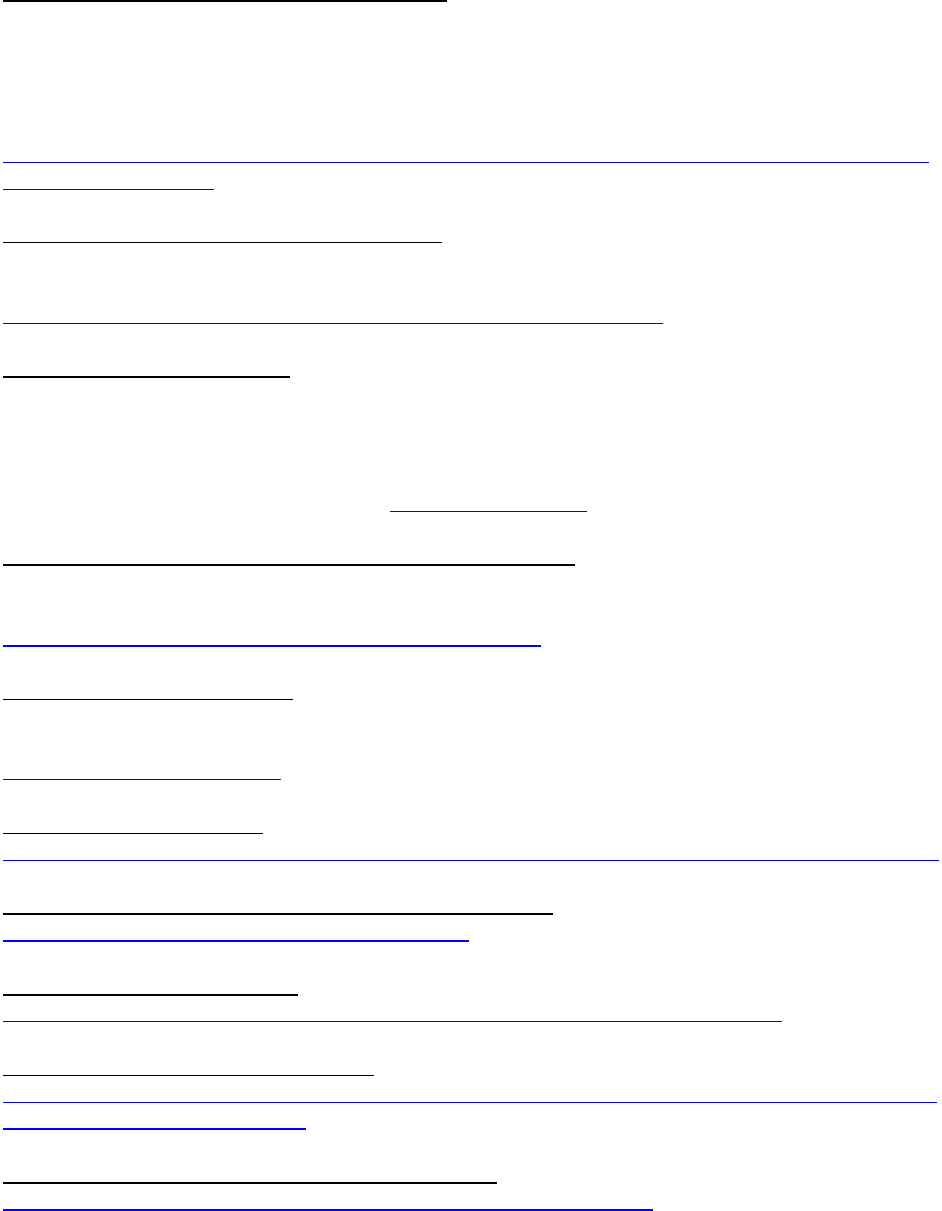
Page | 47
Disability Resources and Services (303-315-3510)
The University of Colorado Denver is an educational institution that welcomes and supports a diverse
student body. The Disability Resources and Services Office is the designated office that maintains
disability-related records, determines eligibility for academic accommodations, determines reasonable
accommodations and develops plans for the provision of such accommodations for students attending
the university.
http://www.CUAnschutz.edu/student-services/resources/disability-resources-services/Pages/disability-
resources-services.aspx
Diversity and Inclusion, Office of (303-724-8003)
The Office of Diversity and Inclusion (ODI) provides leadership to enhance diversity university-wide and
to foster a culture of inclusion
http://www.CUAnschutz.edu/about/departments/odi/Pages/default.aspx
Ethics Hotline (1-800-677-5590)
CU EthicsLine provides a way to anonymously report concerns involving fiscal misconduct, violations of
state or federal law, serious or recurring violations of university policy, or gross waste of university funds
or property. The reporting service is provided by EthicsPoint, an independent company that provides
similar services for hundreds of companies and universities. Options for 24/7 reporting are via a toll-free
phone number (1.800.677.5590) or online (www.Ethicspoint.com).
Environmental Health & Safety, Department of (303-724-0345)
N-95 Respirator Training/Fit-Testing (for those needing to go into the BSL-3)
Radiation Safety Training
http://www.CUAnschutz.edu/research/EHS/Pages/EHS.aspx
Equity, Office of (303-315-2567)
Staff can assist with reports of discrimination, harassment, or sexual misconduct. They can also take
ADA accommodation requests, and/or reports of accessibility issues.
http://equity.CUAnschutz.edu/
Financial Aid (303-724-8039)
http://www.CUAnschutz.edu/student-services/resources/CostsAndFinancing/Pages/CostsFinancing.aspx
Family Educational Rights and Privacy Act (FERPA) guidelines
http://www2.ed.gov/policy/gen/guid/fpco/faq.html
Graduate School (303-724-2915)
http://www.CUAnschutz.edu/academics/colleges/Graduate-School/Pages/default.aspx
ID/Access Badging Office (303-724-0399)
http://www.CUAnschutz.edu/anschutz/about/location/Police/ElectronicSecurity/SecurityBadgingOffice/
Pages/SecurityBadgingOffice.aspx
Information Technology, Office of, OIT (303-724-4357)
https://www1.CUAnschutz.edu/offices/office-of-information-technology

Page | 48
IT equipment, server, local software in Department of Immunology & Microbiology only
Please submit all support requests using a ticket at:
http://Micro-LS1.ucdenver.pvt/support/
LGBTQ Student Resource Center (303-556-6333)
LGBTQ Student Resource Center is a tri-institutional office on the Auraria Campus serving the students,
faculty and staff of Metropolitan State College of Denver, Community College of Denver and University
of Colorado at Denver and Health Sciences Center. We are available to students as a resource for
exploring issues of sexual orientation and gender identity.
http://www.CUAnschutz.edu/life/services/glbtss/services/Pages/default.aspx
Library Services (303-724-2152)
http://hslibrary.CUAnschutz.edu/
The Health Sciences Library is located on the Anschutz Medical Campus. A library card may be obtained
after following the instructions at: https://hslibrary.CUAnschutz.edu/library-account-app.
Hours change seasonally. Bibliographical searches available include Medline, CINAHL, Cancerlit, Health,
AIDsline, and PsychInfo. Classes are also available free of charge.
Small study rooms are available within the AMC library. Please see more information regarding use and
reservation at: http://hslibrary.CUAnschutz.edu/policies/meeting-room
Ombuds Office (303-724-2950)
The Ombuds Office is a safe, confidential, and nonbiased resource that members of the University of
Colorado-Denver can approach to discuss, voice, and clarify any university-related concerns. We are a
neutral third-party resource that is available to hear individual complaints and help sort out and identify
options for resolving those concerns.
The Ombuds Office is well-trained in listening, facilitating, recommending, mediating, and coaching.
Each individual on our team is a member of the International Ombudsman Association and
are Certified Organizational Ombudsman Practitioners.
We even offer trainings and seminars for groups and departments to help learn communication skills,
conflict management, and effective team building.
http://www.CUAnschutz.edu/about/departments/OmbudsOffice/Pages/OmbudsOffice.aspx
Parking & Transportation (303-724-0049)
http://www.CUAnschutz.edu/about/departments/FacilitiesManagement/ParkingMaps/Parking/Pages/P
arking.aspx
Police, Anschutz Medical Campus (303-724-4444) Emergencies 911
• Fingerprinting
• Online Bike Registration
• Classes and Training
• Escort
• Expressive Activities Policy
• Motorist Assist
• Lost and Found
• Request a Police Report
• Door Opening
• Emergency Notifications
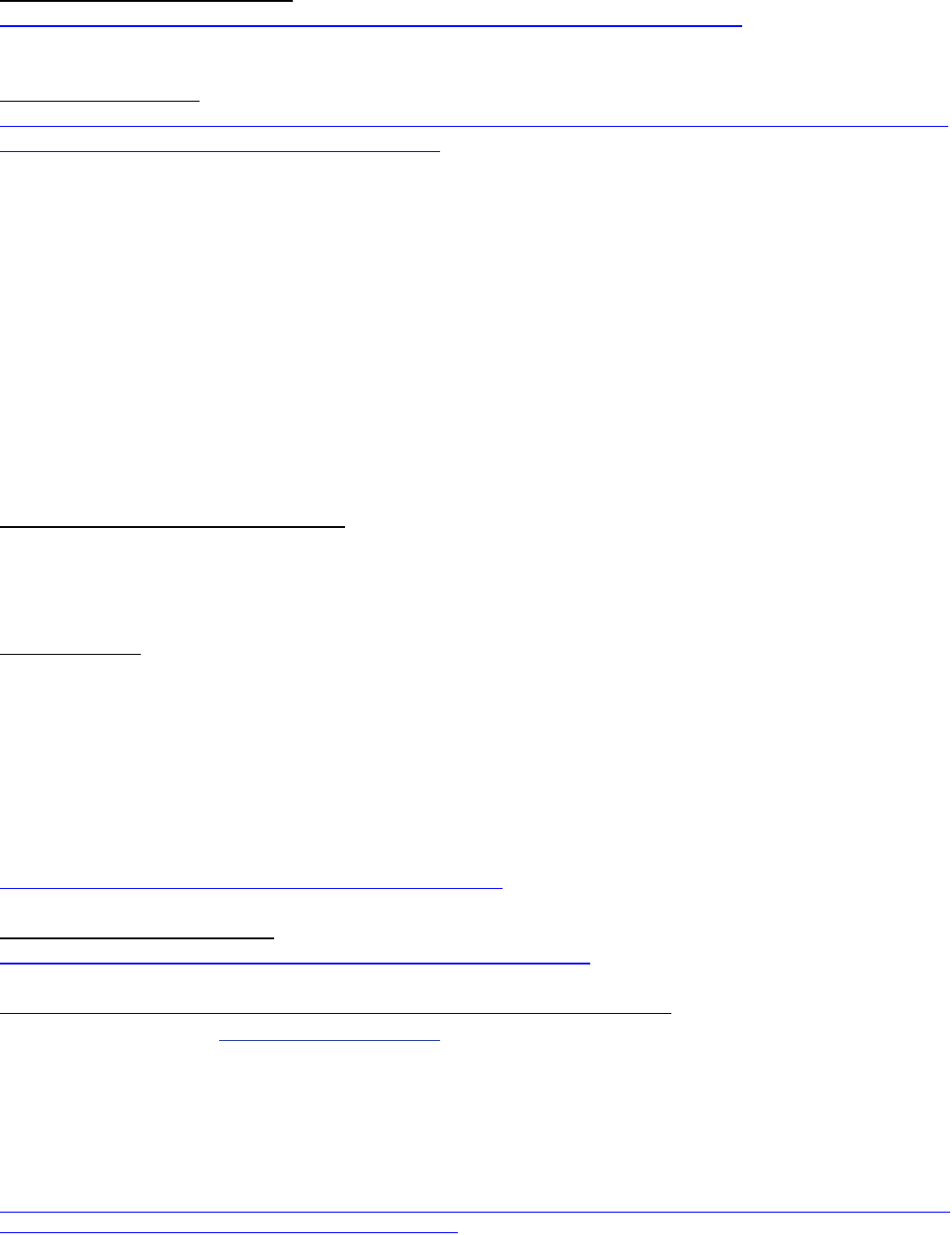
Page | 49
Registrar, Office of (303-315-2600)
http://www.CUAnschutz.edu/anschutz/studentresources/Registrar/Pages/Registrar.aspx
Registering for classes, downloading course books and ordering transcripts
Research Core Facilities
http://www.CUAnschutz.edu/academics/colleges/medicalschool/departments/ImmunologyMicrobiology/resourc
es/ResearchResources/Pages/Core%20Facilities.aspx
Advanced Light Microscopy Core
Animal Model Core
Biostatistics & Bioinformatics Core
Biophysics Core
DNA Sequencing & DNA Analysis Core
Electron Microscopy Core
Flow Cytometry Core
Genomics & Microarray Core
High-Throughput Sequencing Core (HTSC)
Histopathology Core
Mass Spectrometry Core
Nuclear Magnetic Resonance (NMR) Core
Peptide & Protein Chemistry Core
Student Health, Office of (303-724-7674)
The Student Health Insurance (SHI) Plan at the Anschutz Medical Campus is designed to provide students with
health care coverage, offering a PPO accident and sickness health plan. Located in Education 2 North P28-
3207
Student Services
• American Indian Student Services
• Asian American Student Services
• Black Student Services
• Counseling Services
• Office of Campus Student Services
• Student Conduct and Community Standards, Office of
• Veteran Student Services
• Writing Center
http://www.CUAnschutz.edu/life/services/Pages/index.aspx
Student Housing (303-352-3751)
http://www.CUAnschutz.edu/life/services/housing/Pages/default.aspx
Student Mental Health (303-724-4716) Afterhours emergencies (720-848-0000)
Fitzsimons Bldg, Level 2 [email protected] (appt. requests only)
We provide comprehensive and confidential mental health services for all students enrolled in the schools
located at the Anschutz Medical Campus (Medical, Dental, Nursing, Pharmacy, Public Health, Physician Assistant,
Physical Therapy, graduate school, etc.). Initial appointments are scheduled relatively quickly, often within the
same week. Options for ongoing care include receiving treatment from the AMC Student Mental Health clinicians,
the UCH Outpatient Psychiatry Clinic, and a community network of providers, depending on insurance coverage.
http://www.CUAnschutz.edu/academics/colleges/medicalschool/departments/psychiatry/PatientCare/StudentMe
ntalHealth/Pages/Student-Mental-Health-Service.aspx
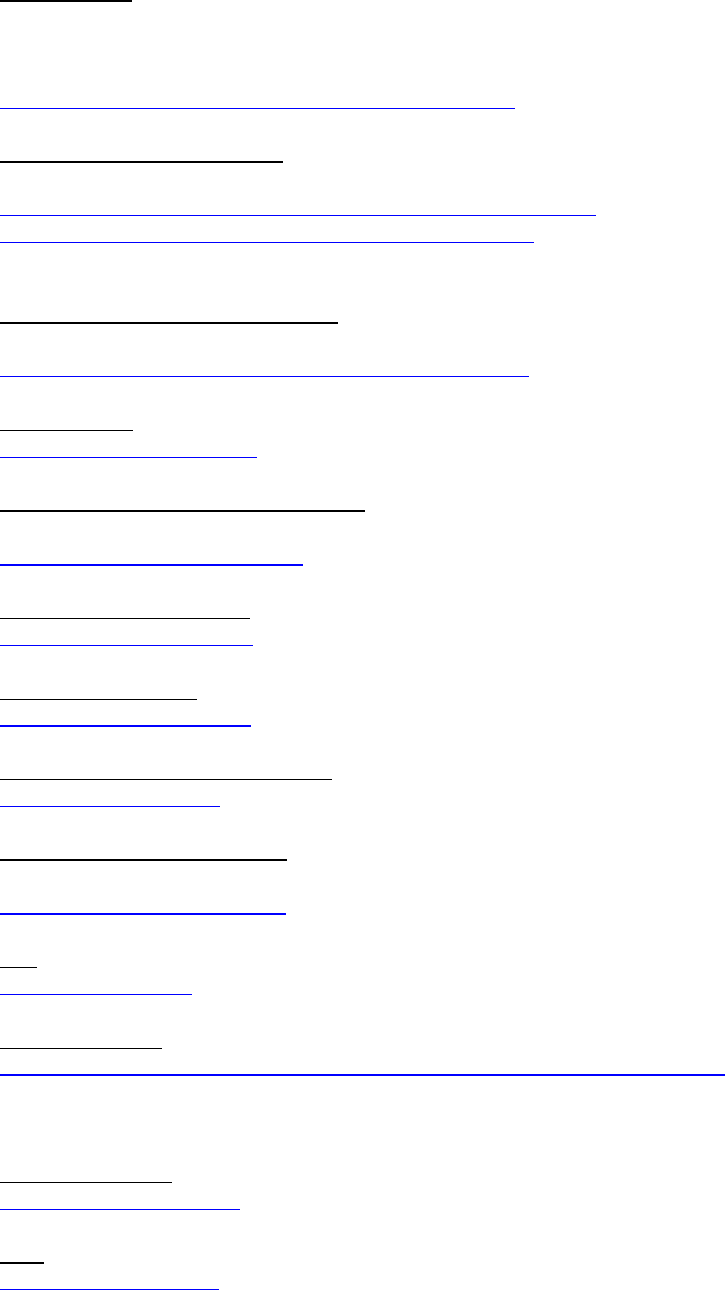
Page | 53
Student Portal
Where you’ll update/access your contact information, grades, financial information, employment information-
pay, W2's, W-4's, employee ID #, various payroll forms (direct deposit), etc.
login is email username & password
https://portal.prod.cu.edu/UCDAccessFedAuthLogin.html
Student Senate (303-315-8254)
Located in Office Annex Building 1C35
http://www.CUAnschutz.edu/anschutz/studentresources/student-
assistance/organizations/senate/Pages/StudentSenate.aspx
City/County/State
Arapahoe County Clerk and Recorder
CO car registration
http://www.co.arapahoe.co.us/Departments/CR/index.asp
Aurora, City of
https://www.auroragov.org/
Colorado Department of Transportation
Road conditions, travel warnings, etc.
http://www.cotrip.org/home.htm
Colorado Secretary of State
http://www.sos.state.co.us/
Denver County & City
http://www.denvergov.org/
Denver Convention & Visitor Bureau
http://www.denver.org/
Department of Revenue – DMV
Emissions testing is required for registering vehicle in Denver/Arapahoe counties
https://www.colorado.gov/dmv
RTD
www.rtd-denver.com
Voter registration
https://www.sos.state.co.us/voter-classic/pages/pub/olvr/verifyNewVoter.xhtml
Local Entertainment & Events
303 Magazine.com
https://303magazine.com/
5280
https://www.5280.com/

Page | 53
Westword magazine
Good source for live music and other events happening in the city
http://www.westword.com/

Page | 53
Thomas E. Morrison, Ph.D. | Director
Graduate Program in Microbiology
Mail Stop 8333
Aurora, CO 80045
Office: 303-724-4283
thomas.morrison@CUAnschutz.edu
Caro S.J. Henauw, M.S. | Administrator
Graduate Program in Microbiology
Mail Stop 8333
Aurora, CO 80045
Office: 303-724-0107
caro.henauw@CUAnschutz.edu
August 13, 2019
TO: Microbiology Graduate Program 2019-2020 incoming students
RE: Receipt of Student Handbook and Colorado Residency Requirements
______This is to confirm that I have received the Microbiology Program Student Handbook and have reviewed it
with the Program Administrator.
______The Colorado Residency Requirements have been explained to me and I have instigated the appropriate
actions to comply. I understand that non-compliance on my part by July 1, 2019 obligates me to pay the
difference between non-resident tuition and resident tuition.
______I acknowledge that I have reviewed and understand the graduate student vacation/sick leave policy.
_______________________________________
Print Name
_______________________________________
Signature Date
